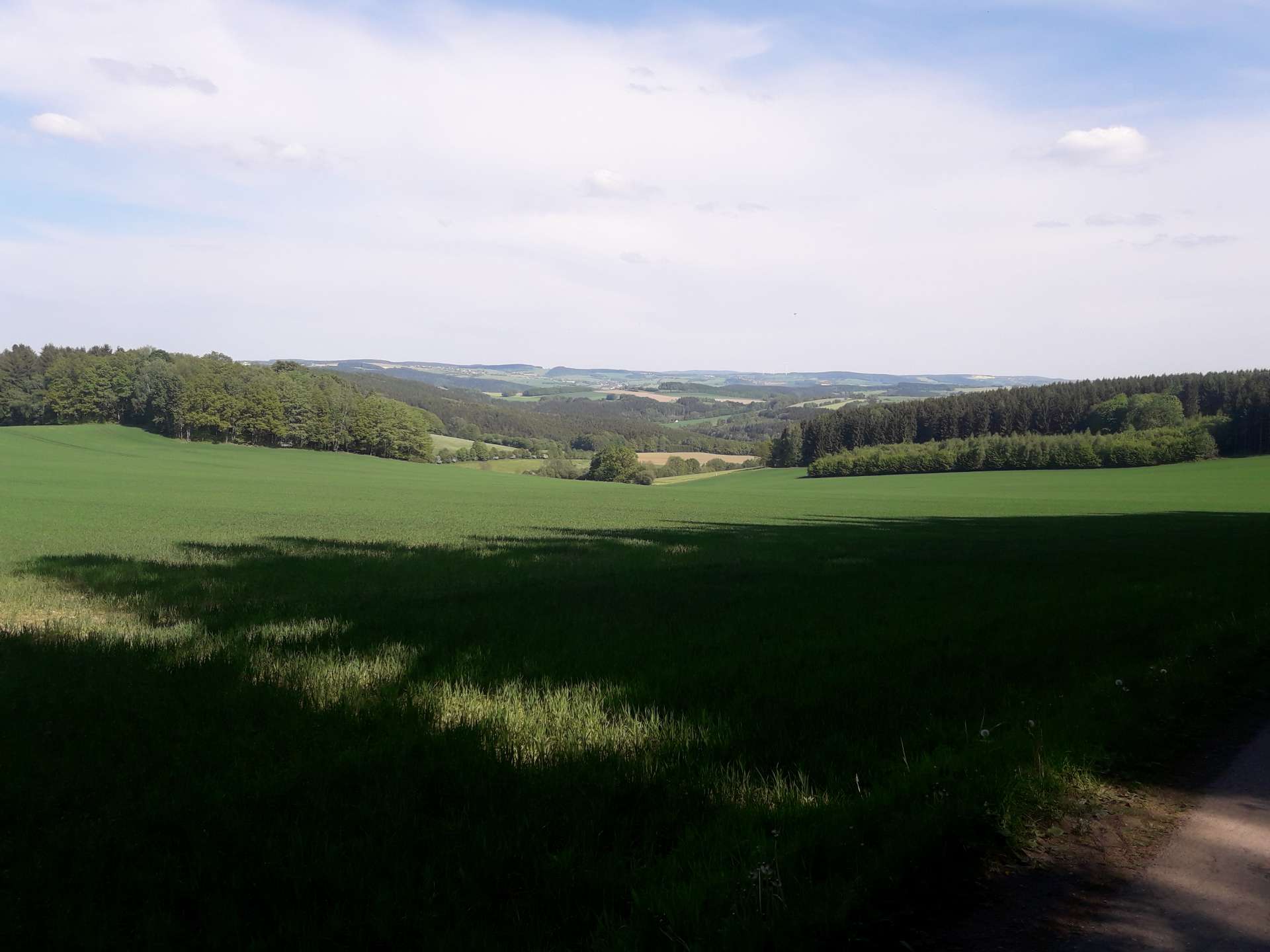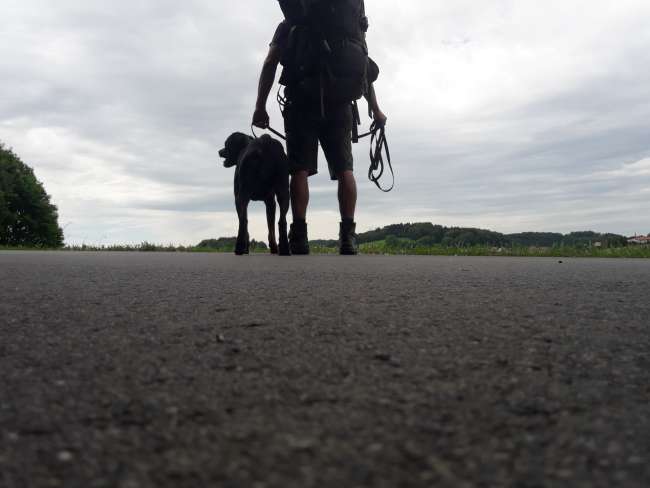Mtskheta - Tbilisi
ޝާއިޢުކޮށްފައިވެއެވެ: 26.09.2018
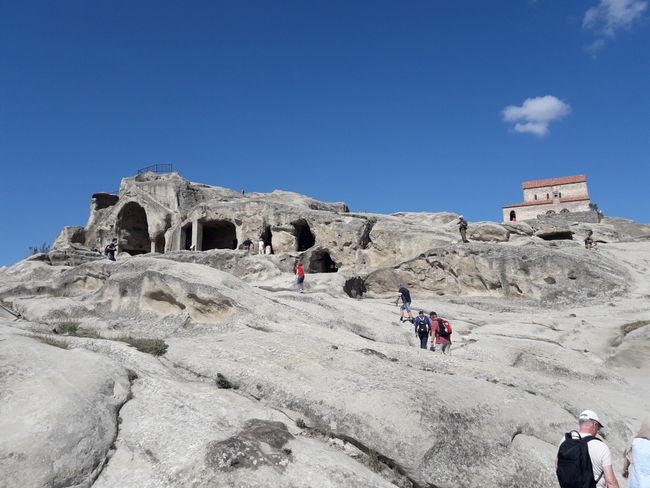
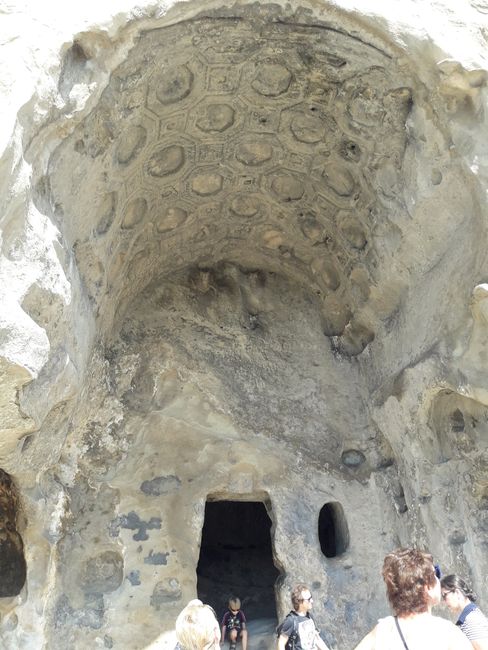
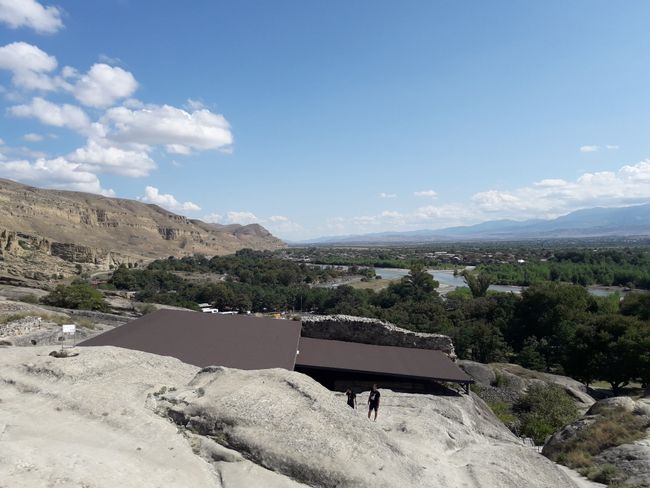
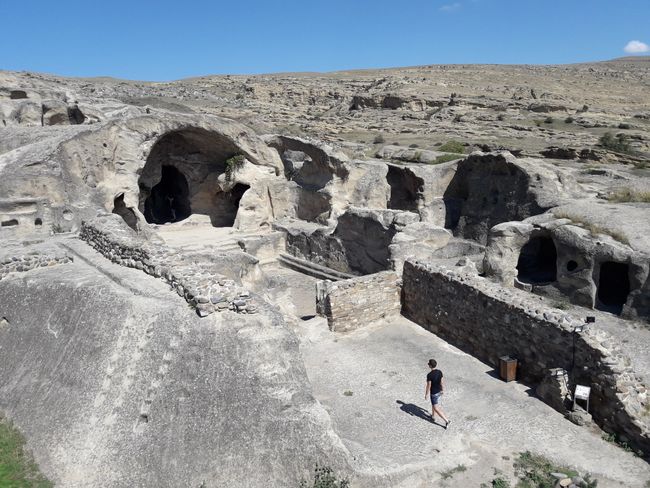
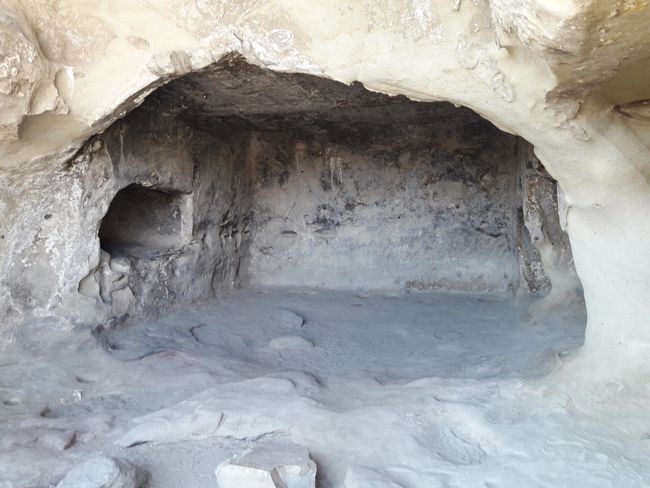
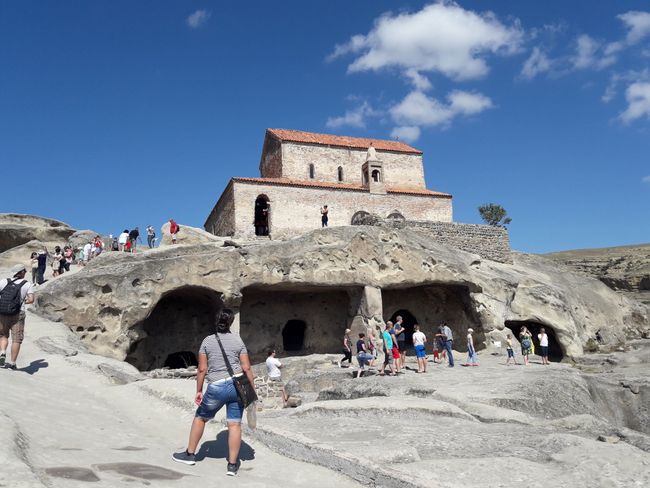
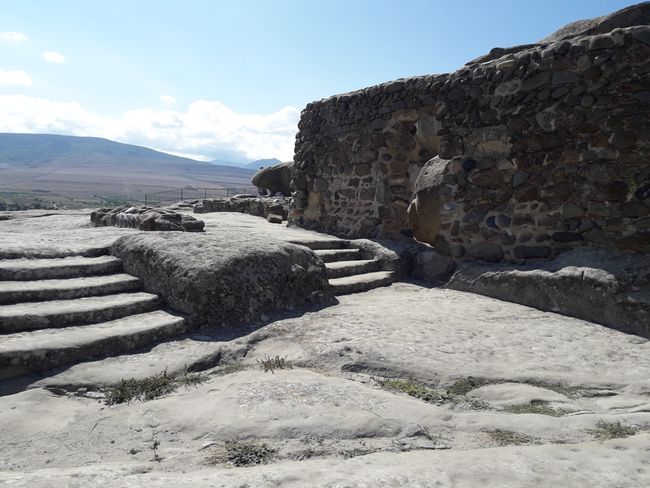
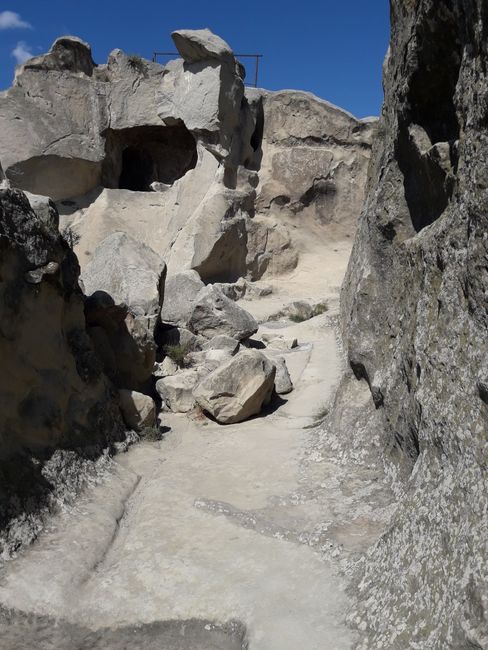
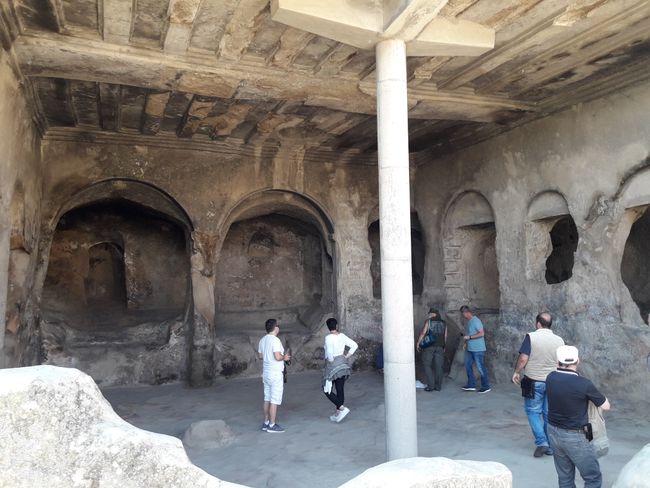
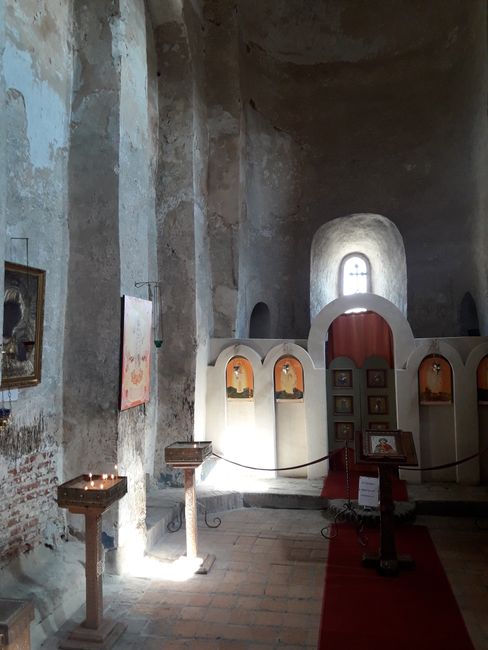
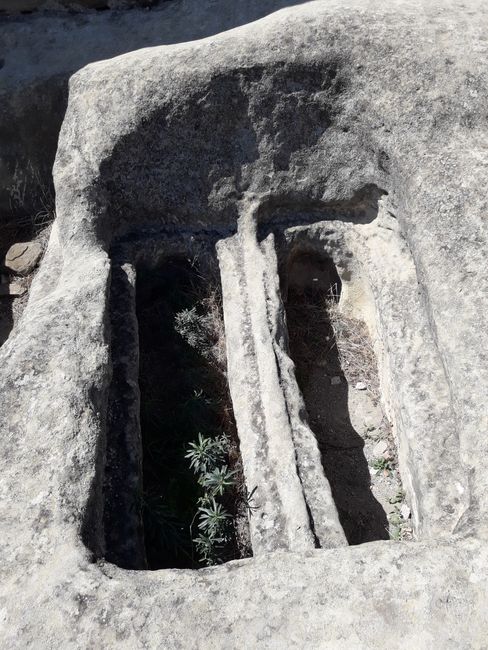
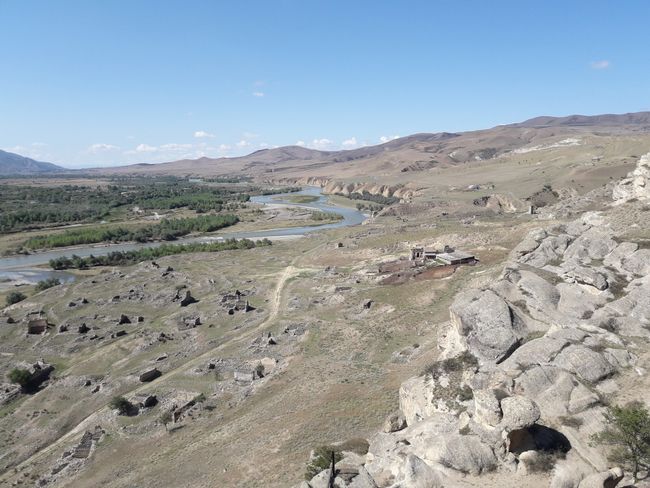
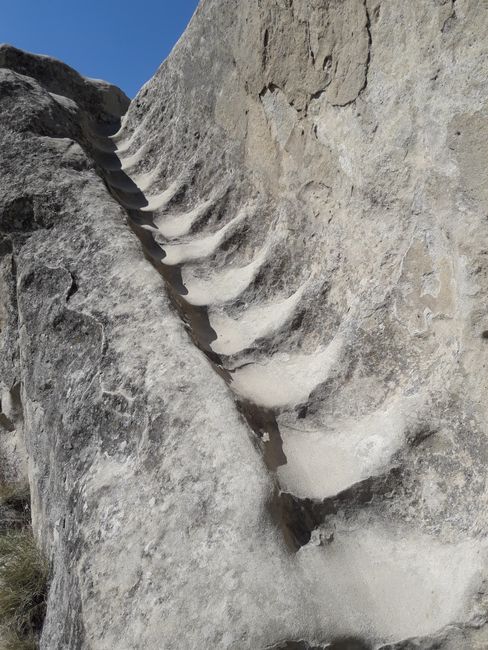
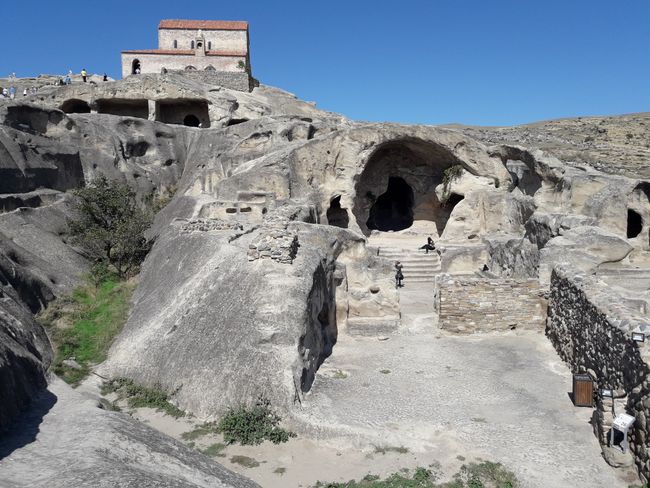
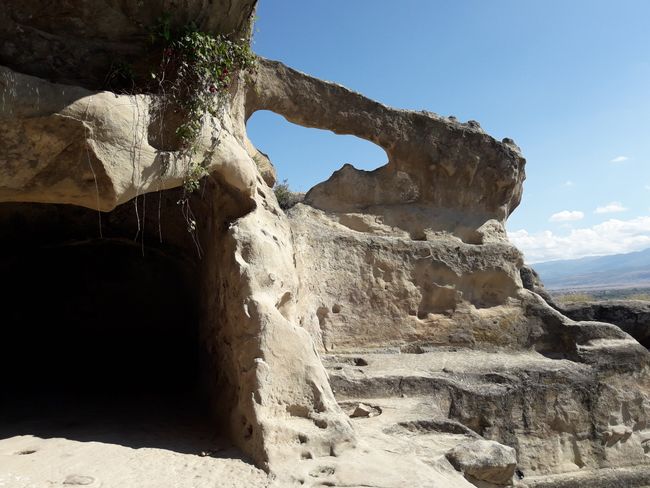
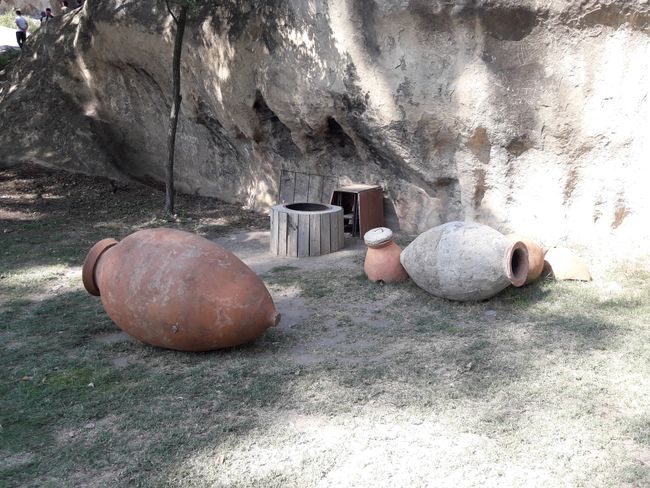
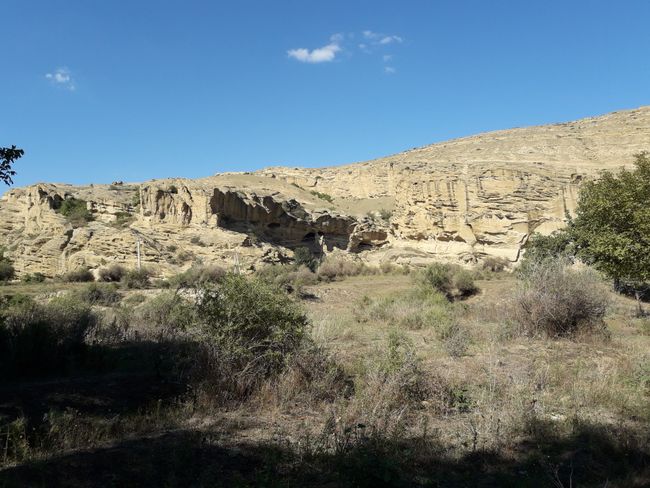
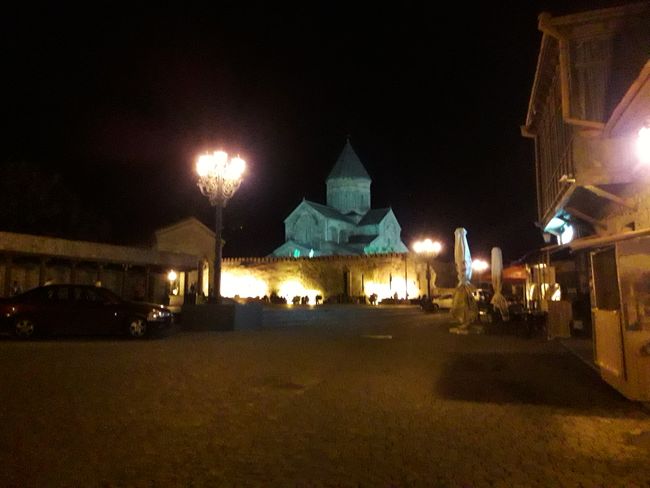
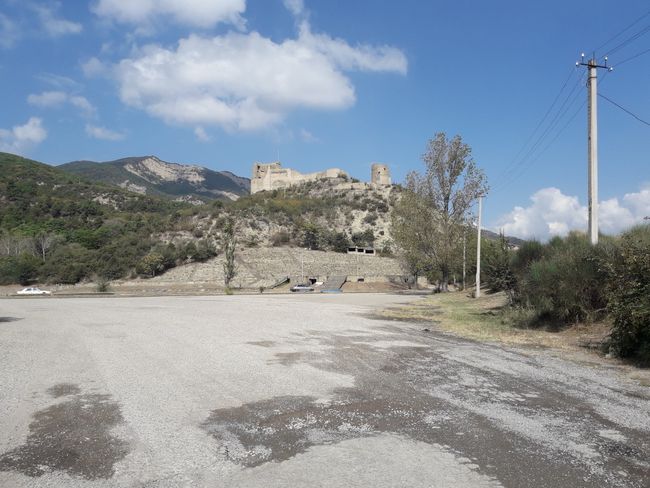
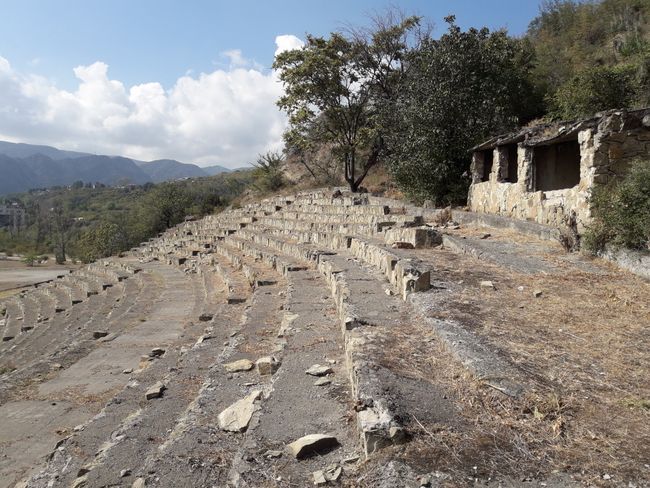
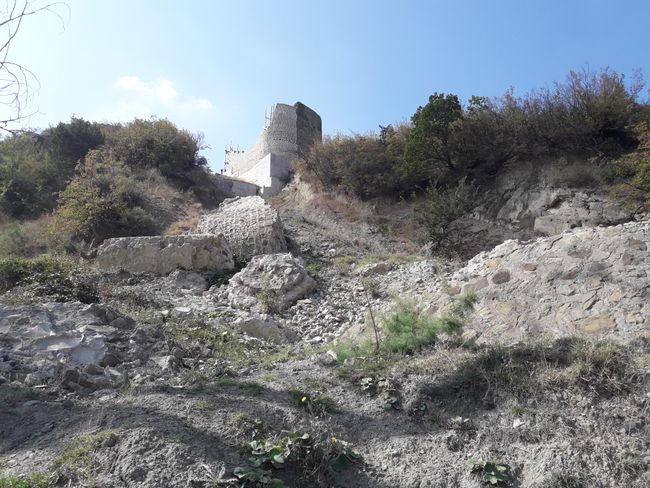
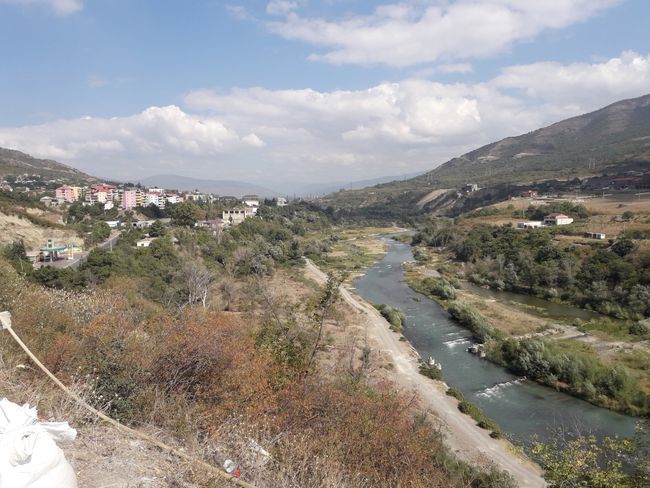
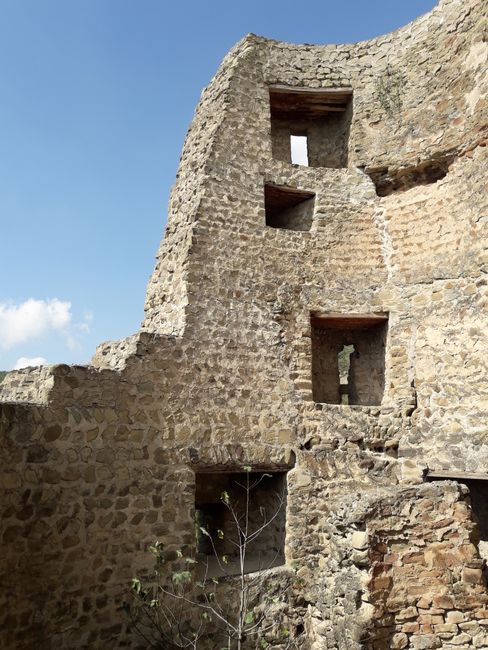
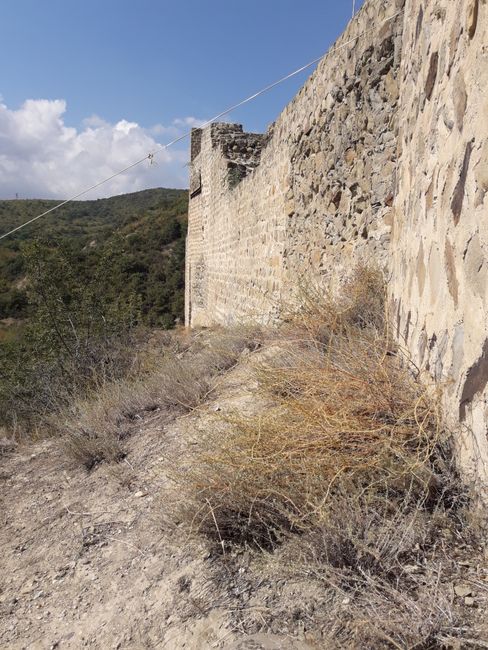
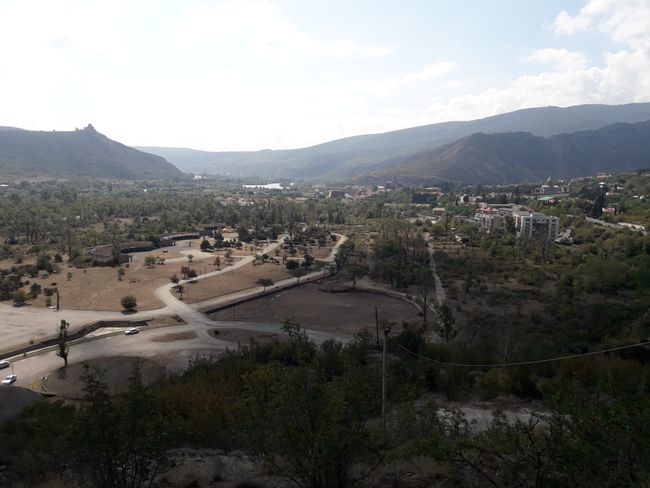
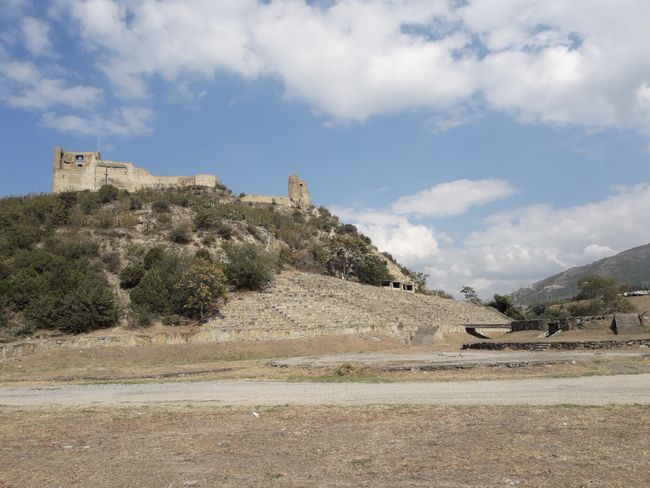
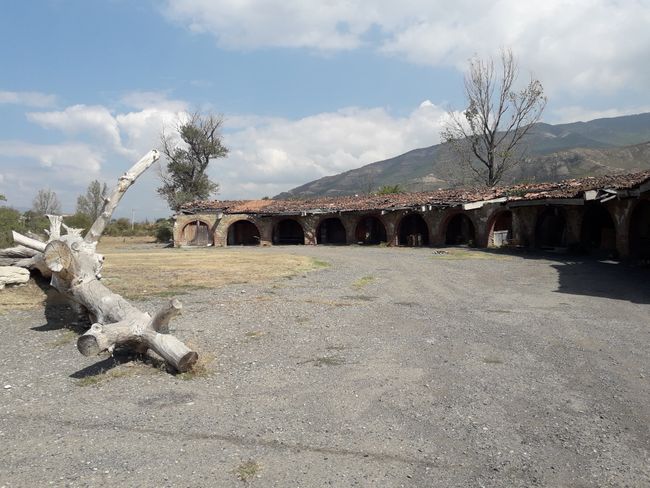
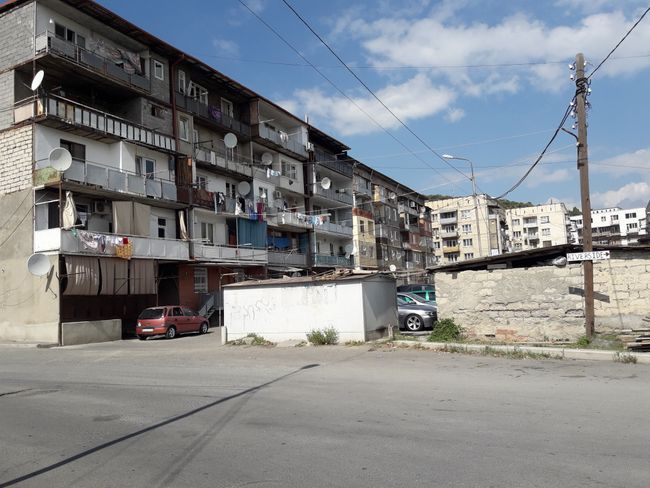
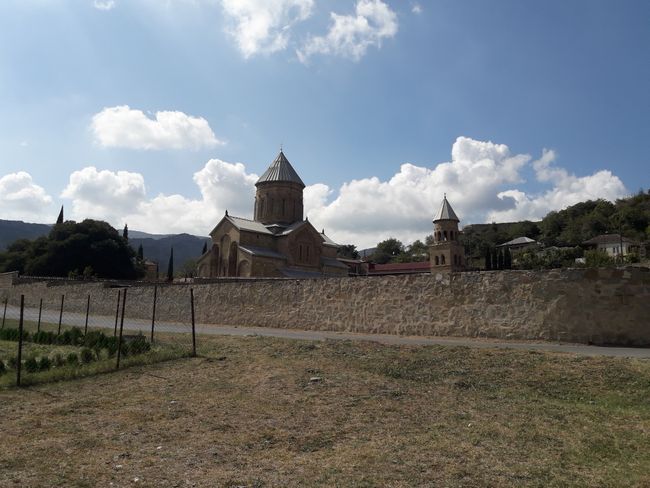
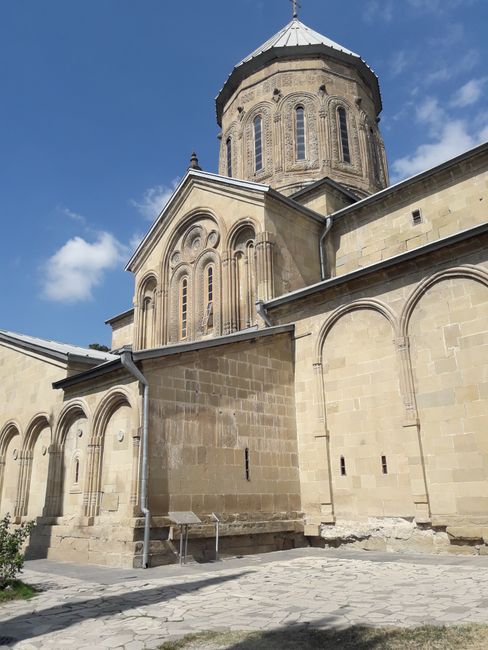
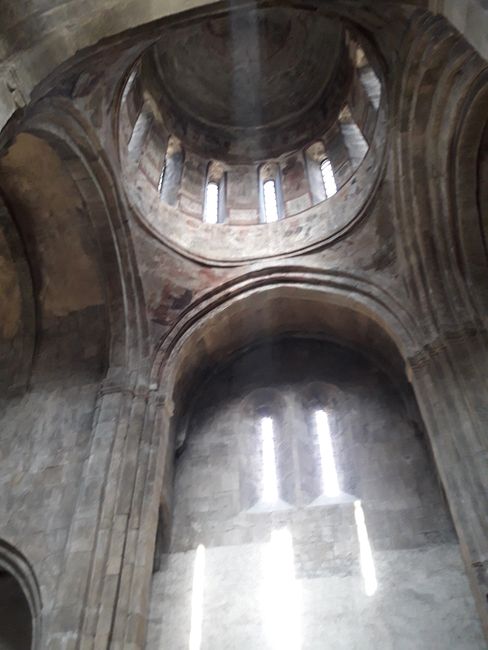
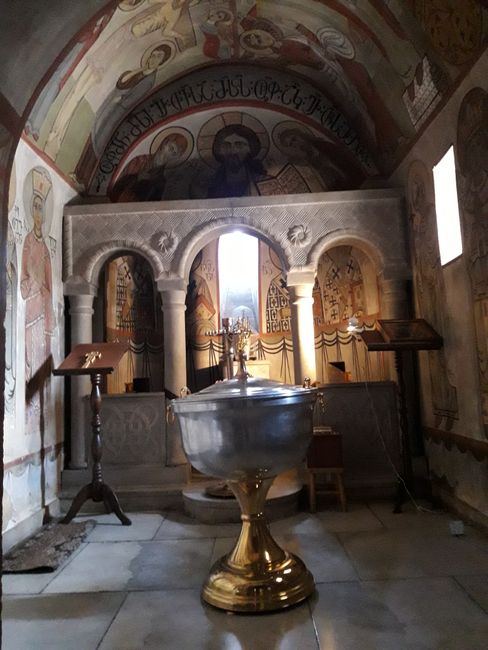
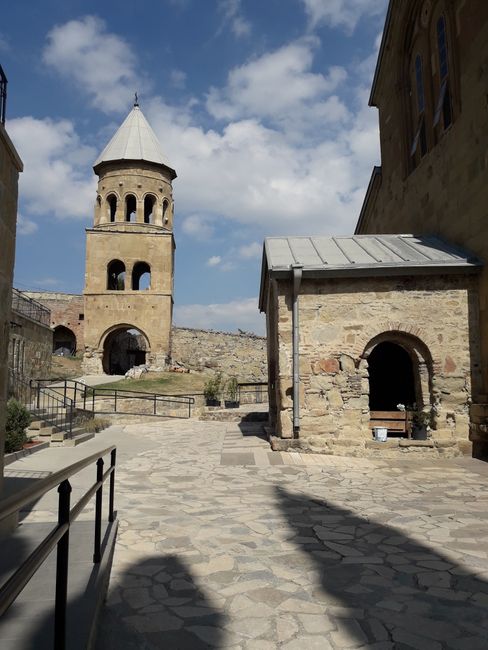
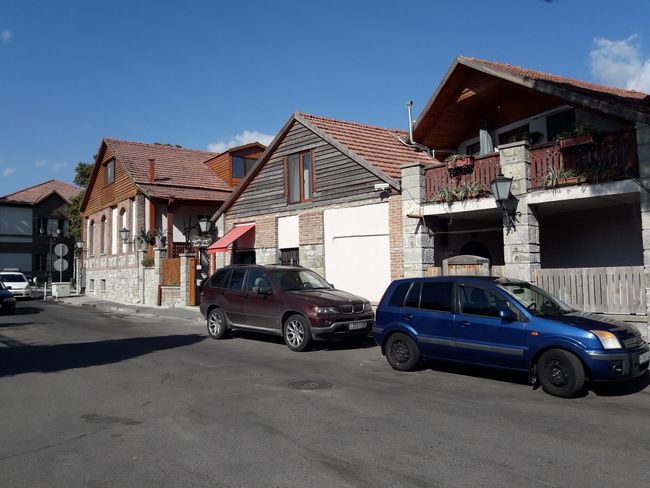
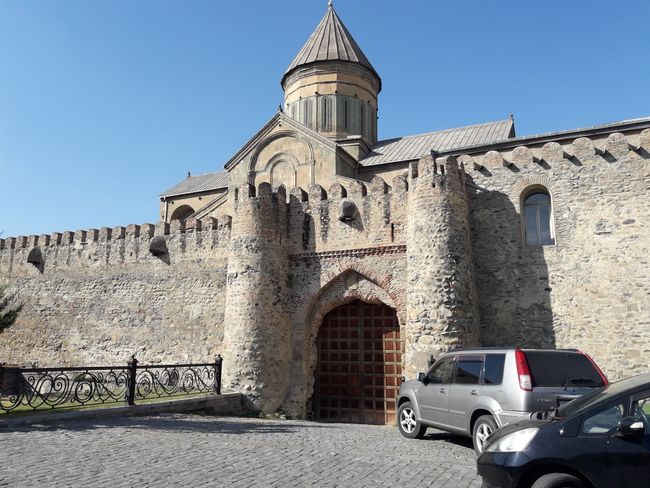
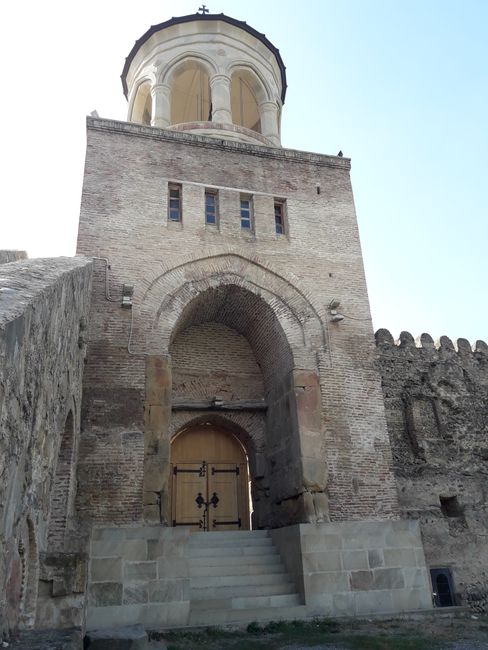
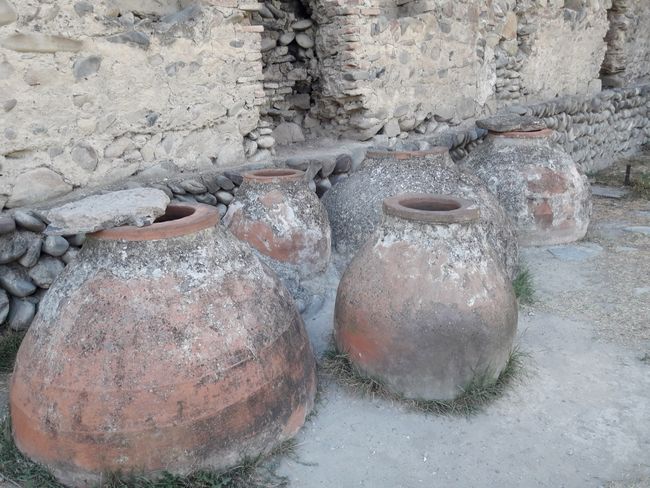
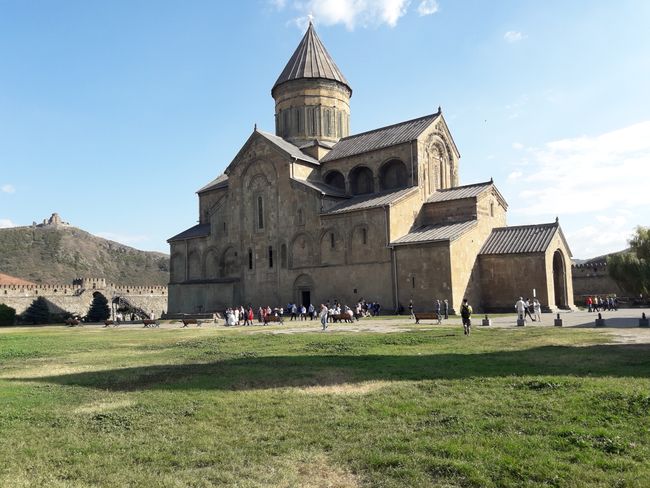
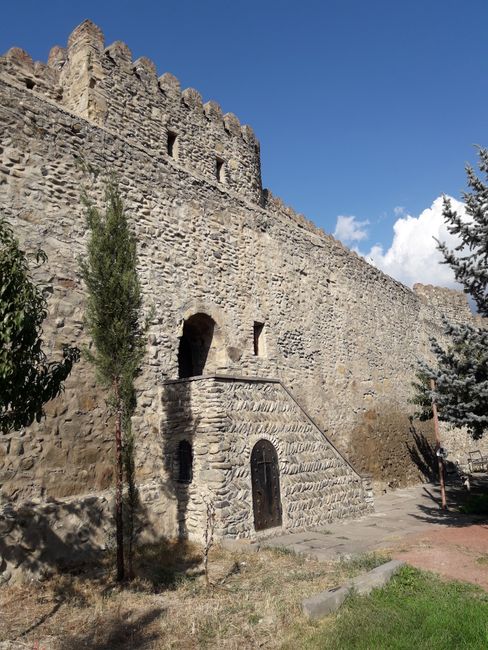
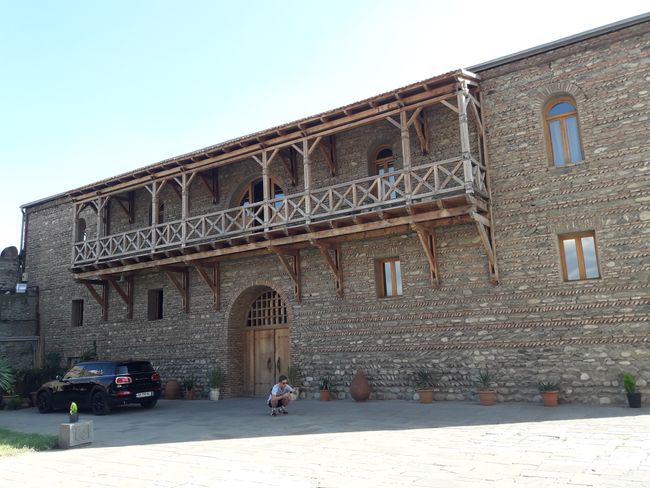
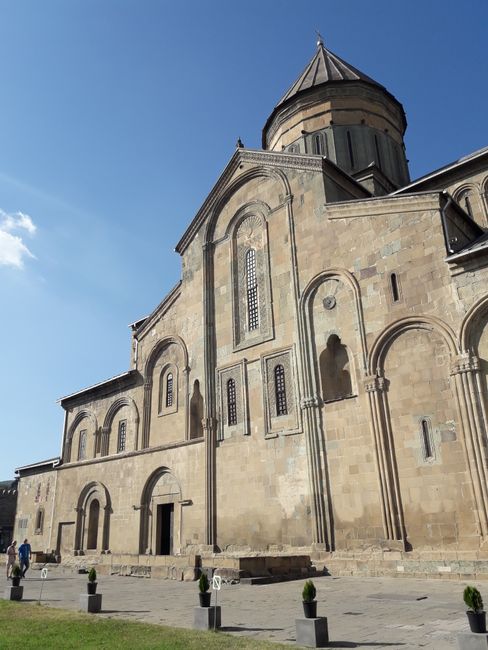
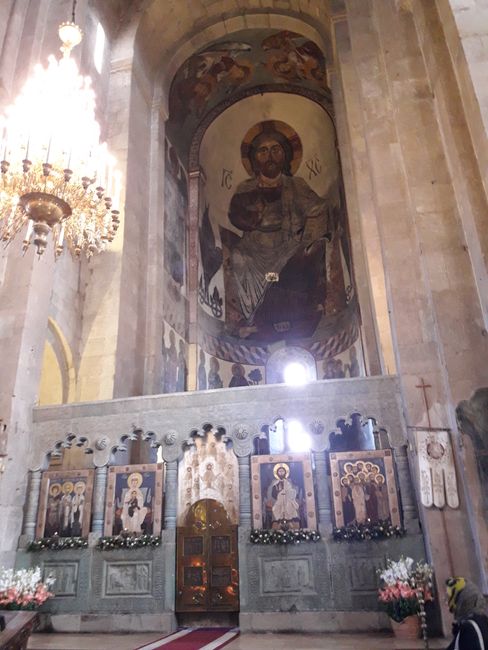
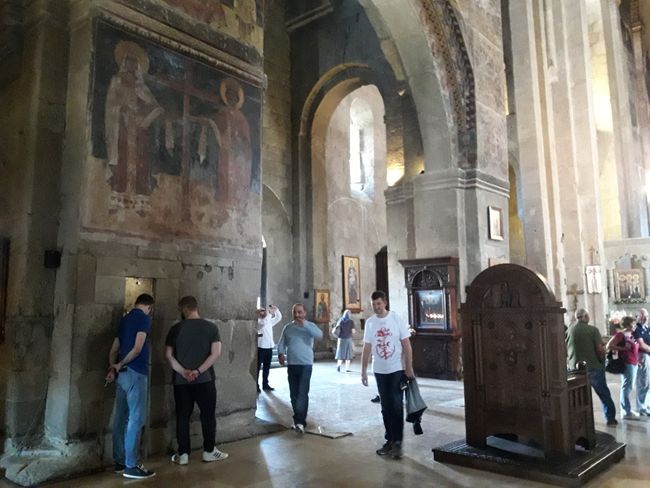
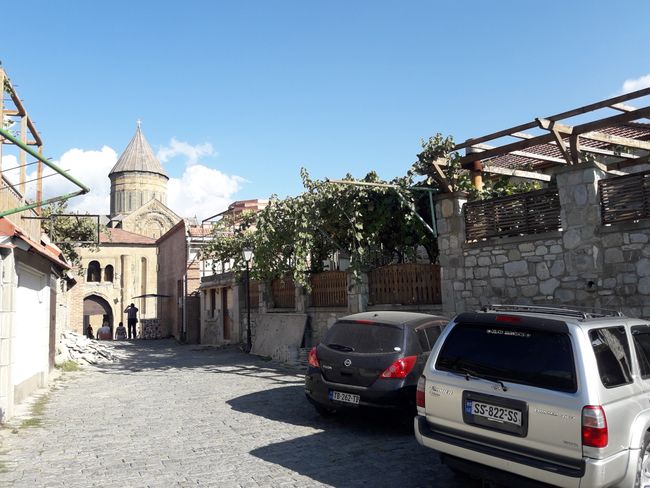
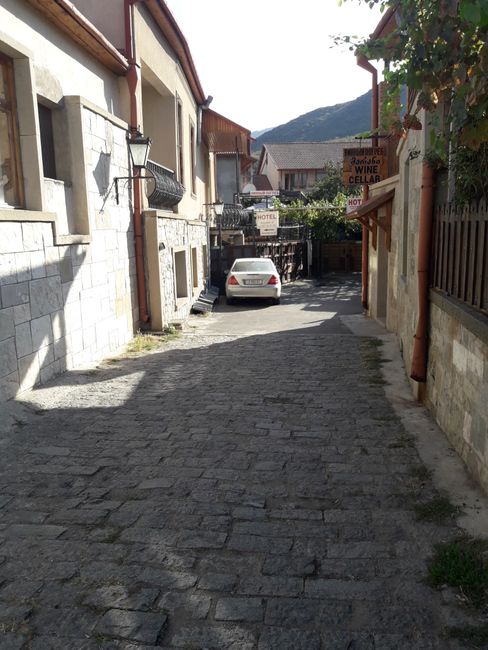
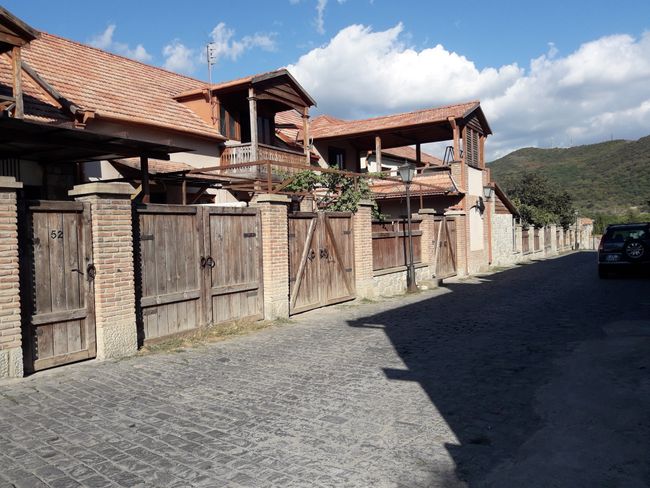
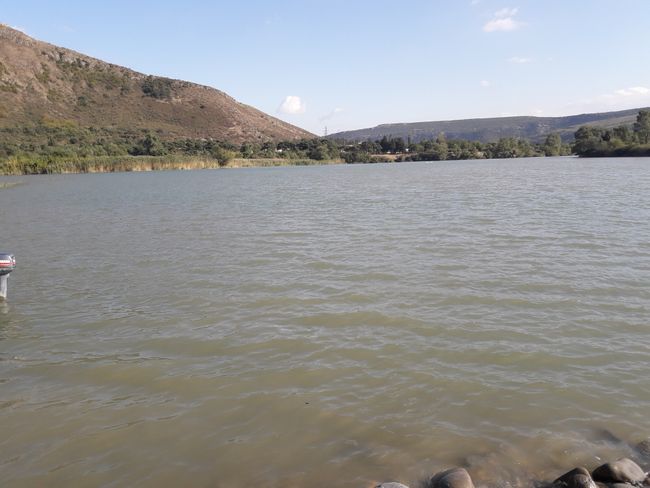
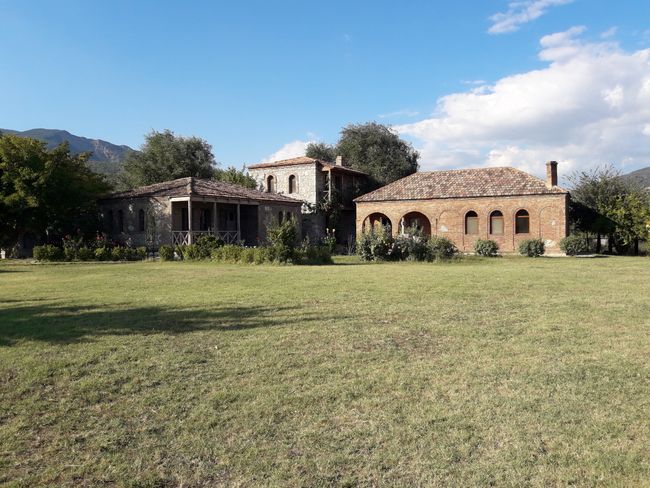
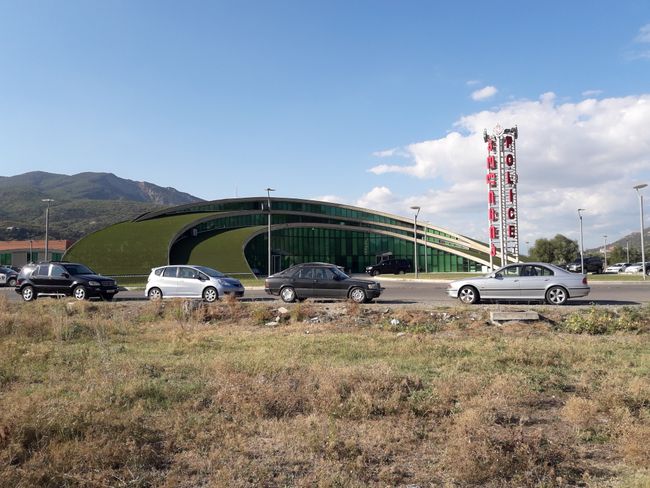
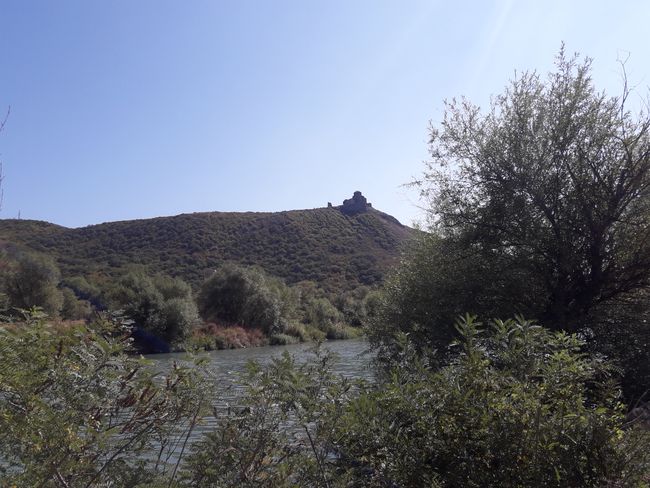
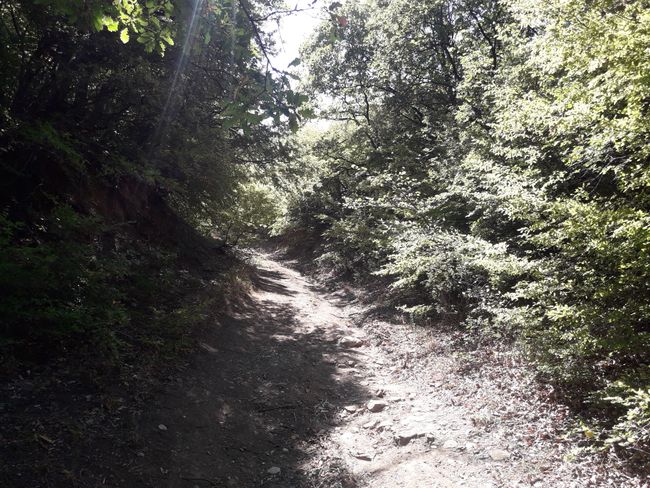
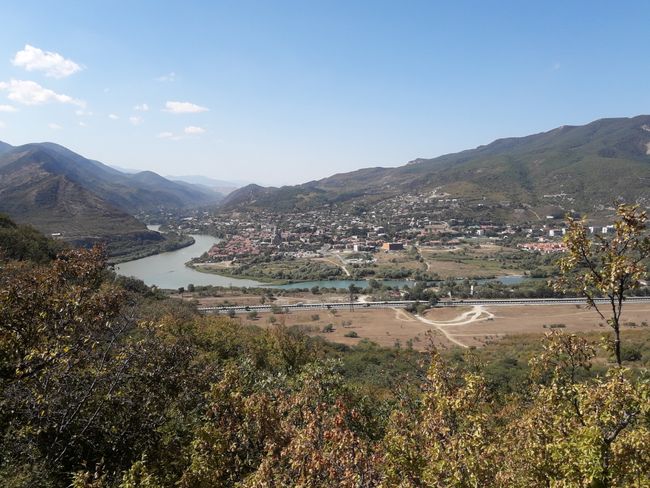
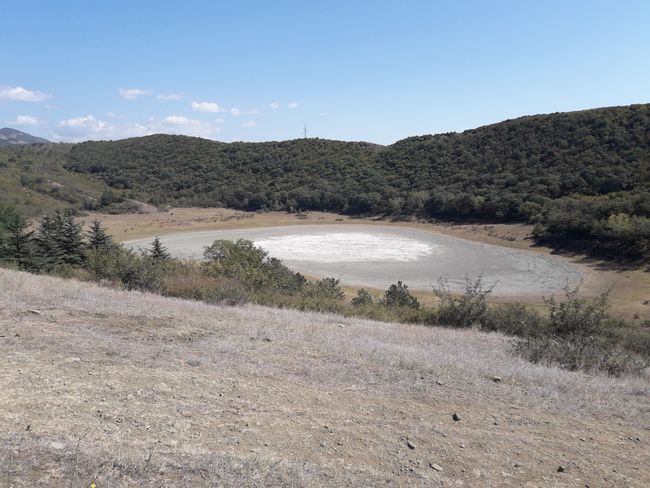
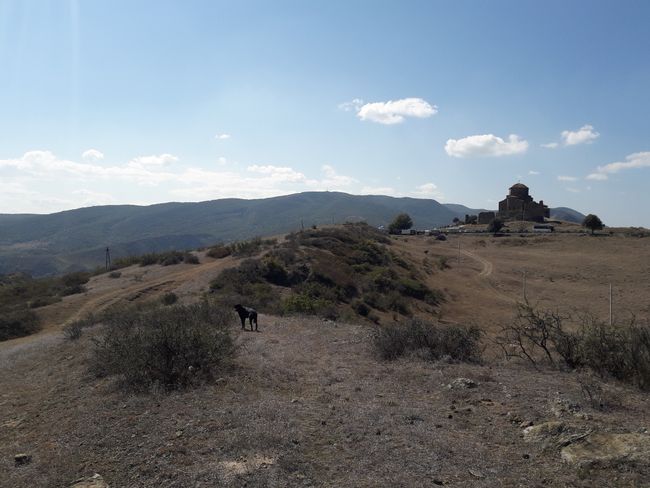
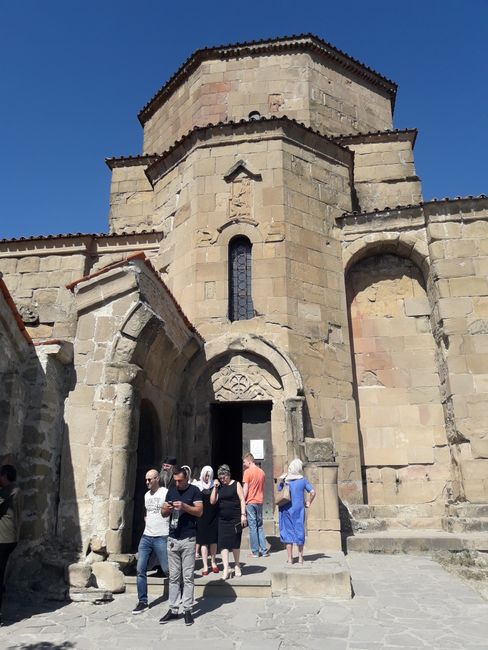
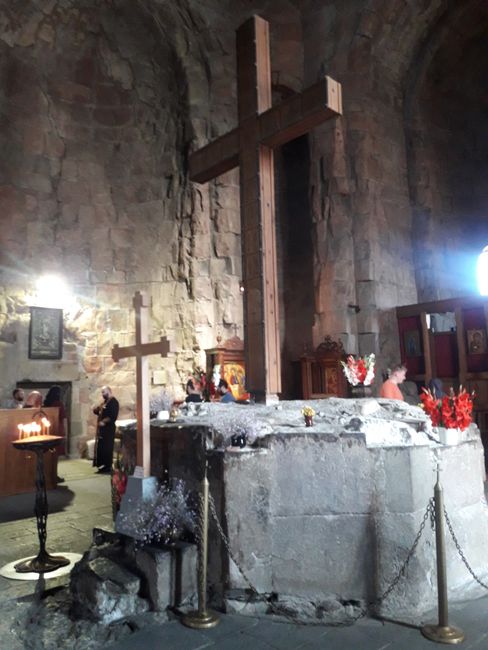
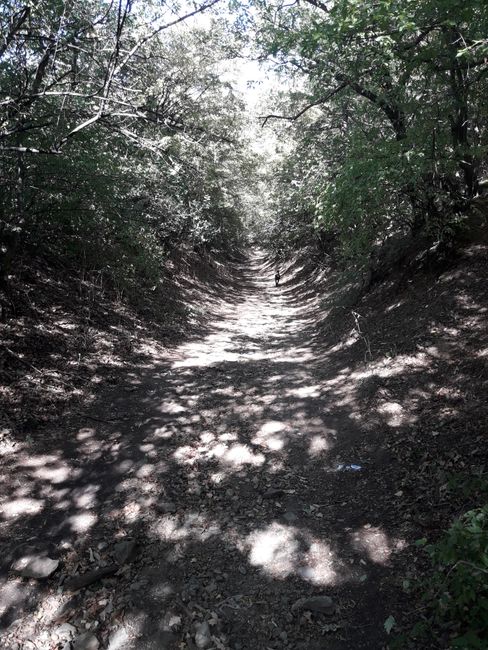
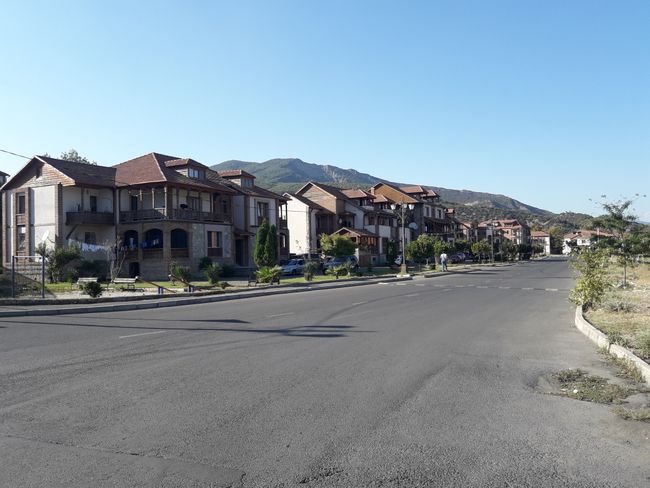
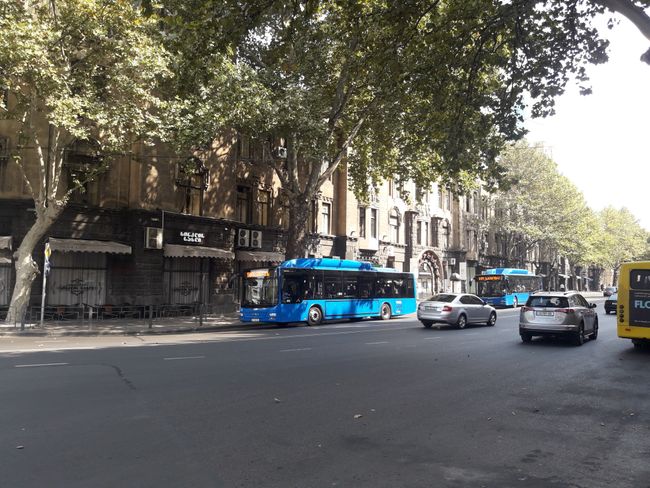
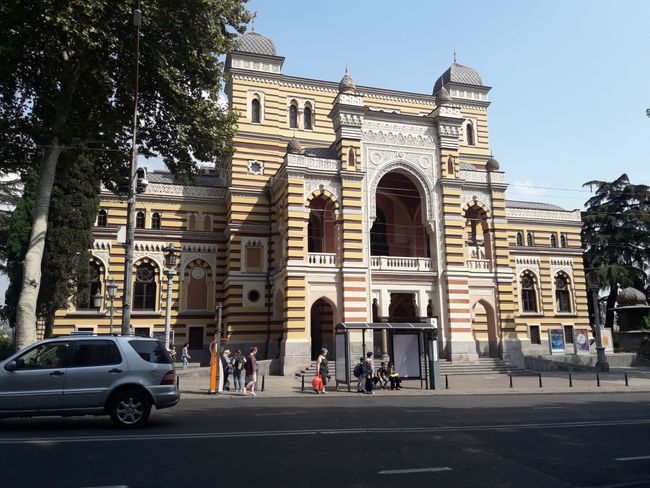
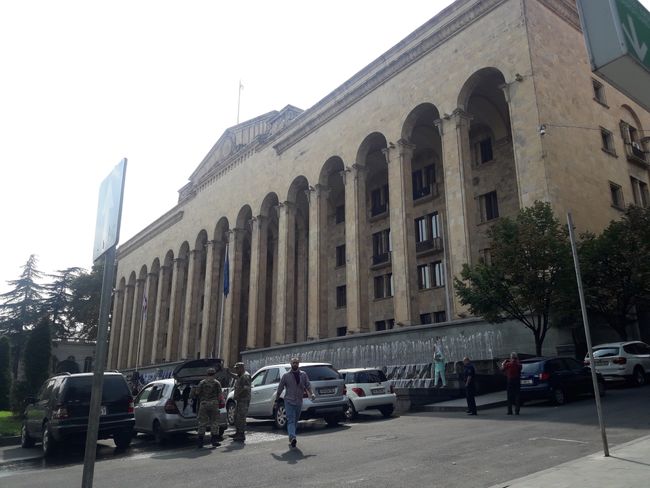
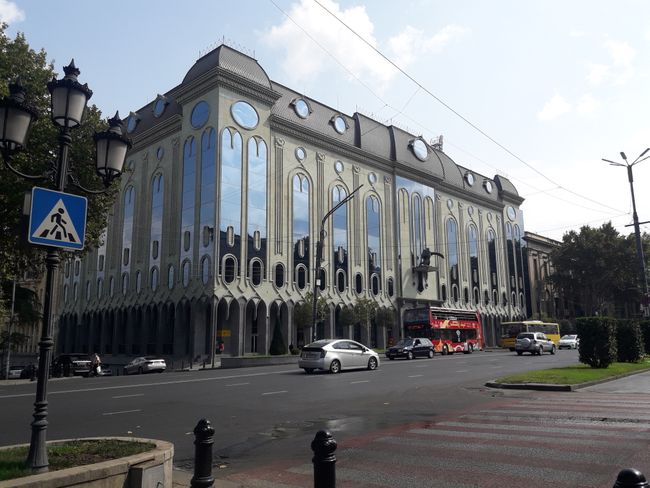
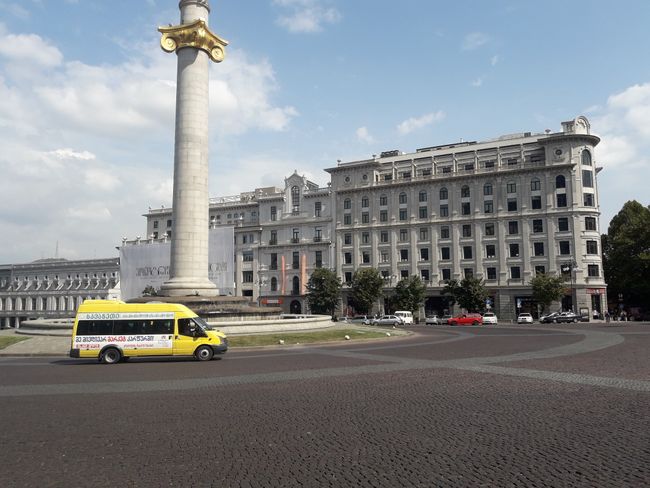
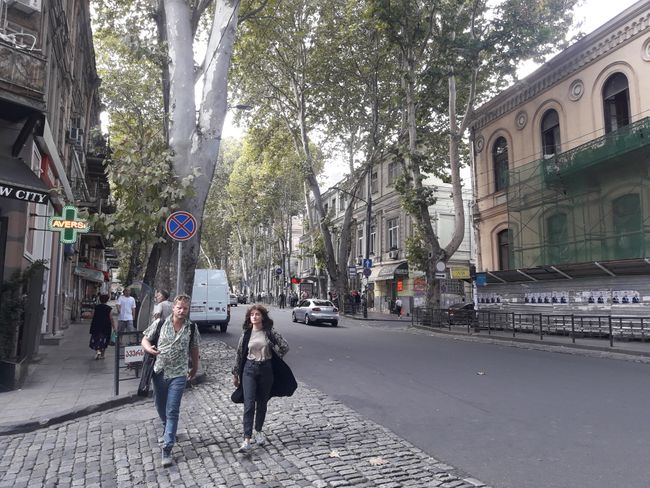
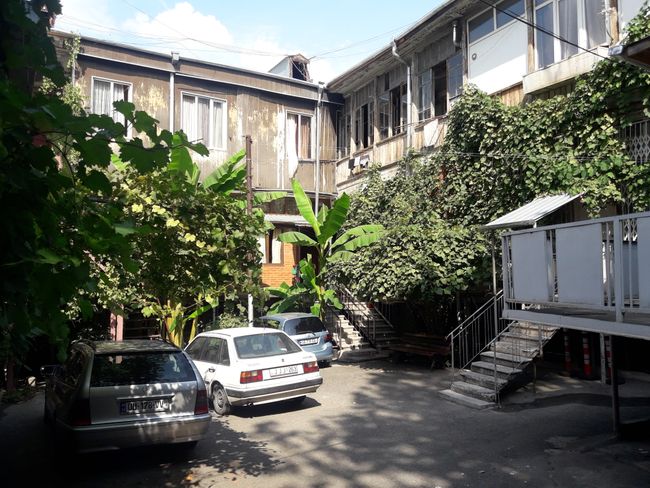
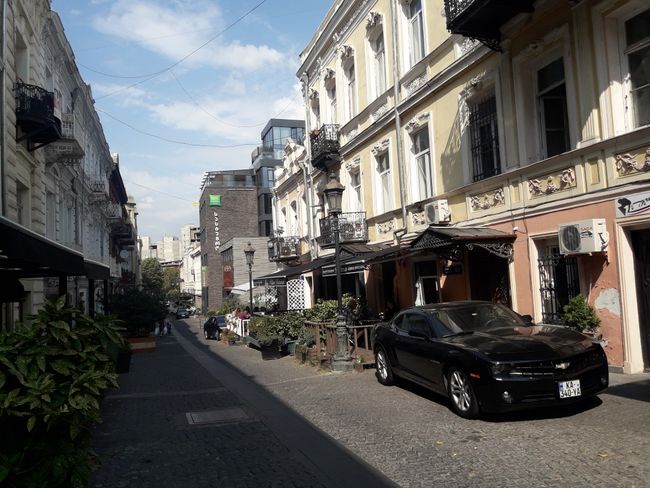
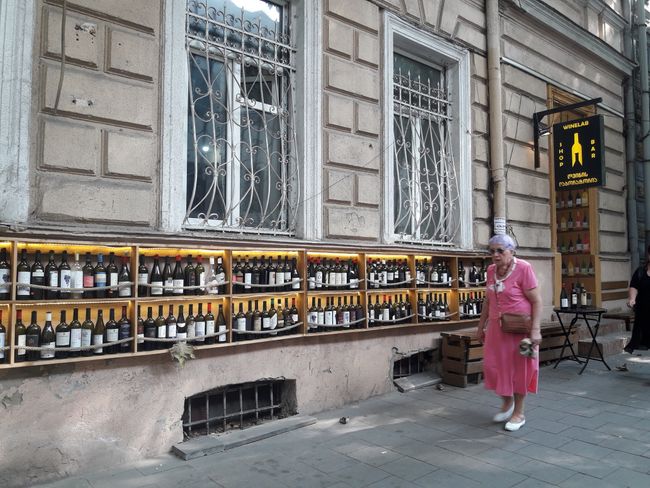
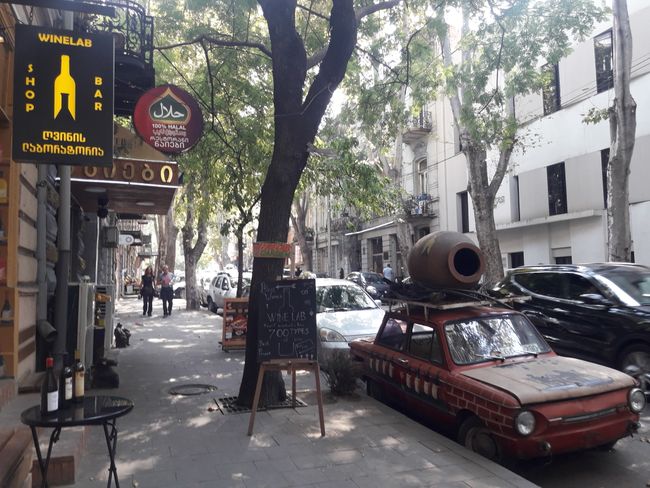
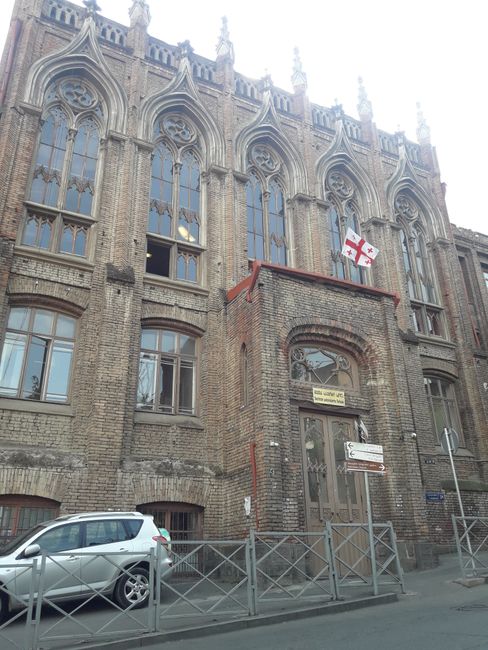
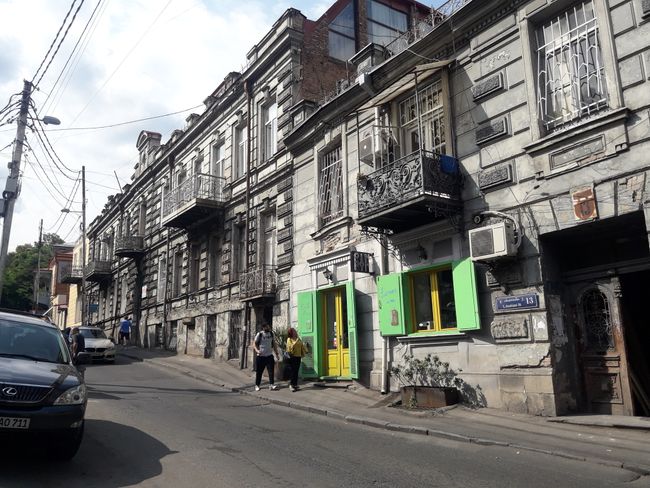
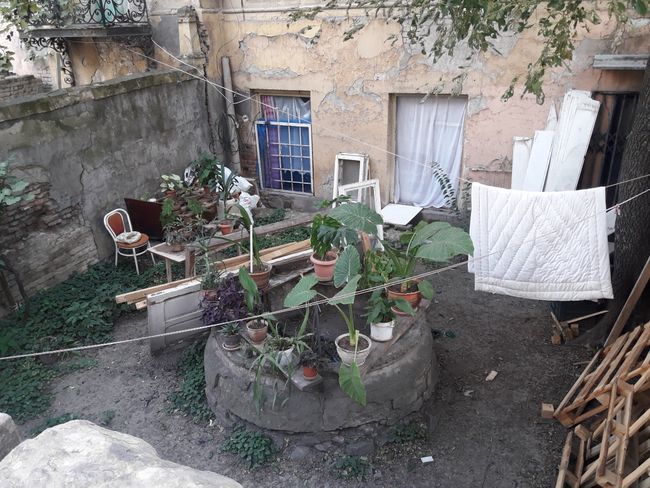
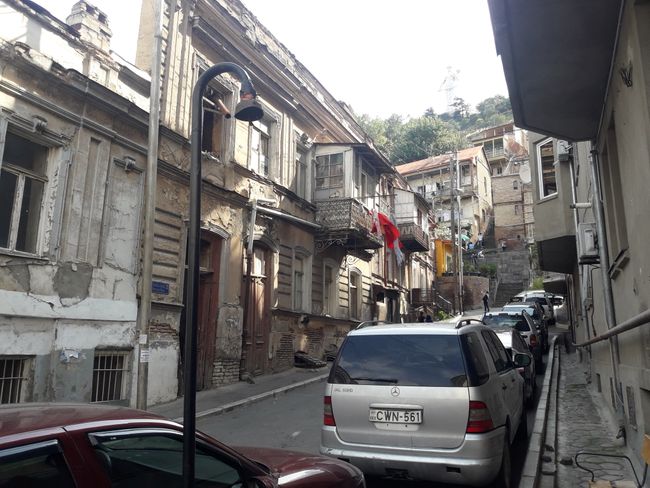
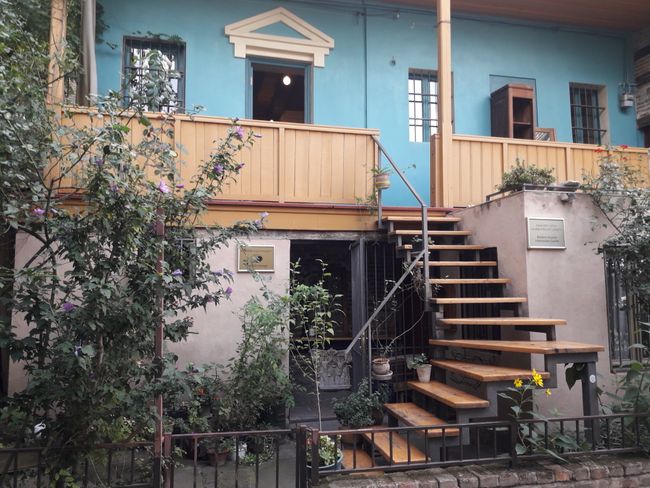
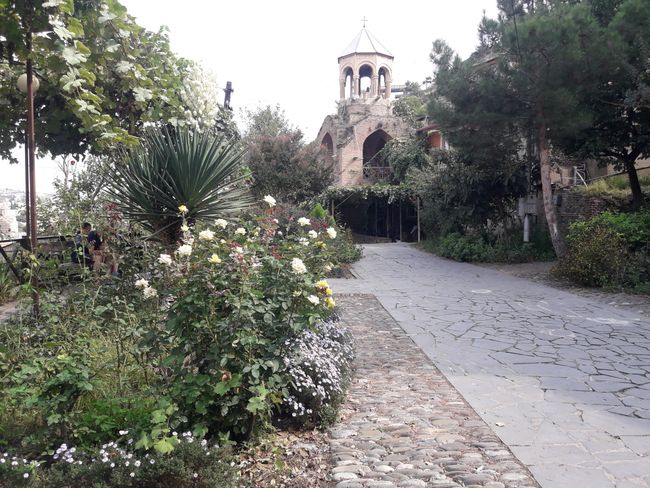
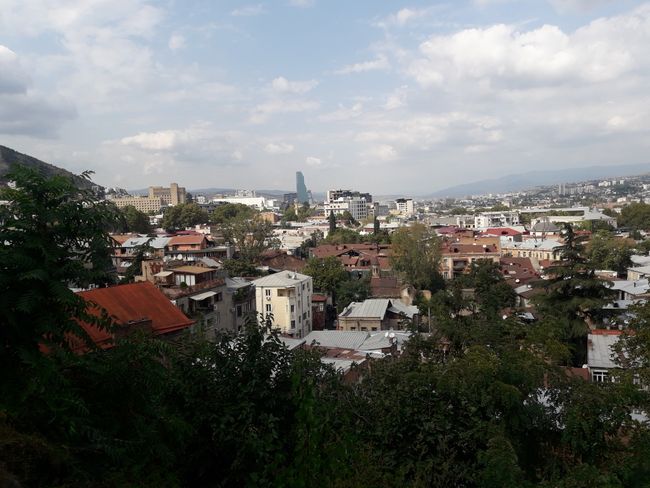
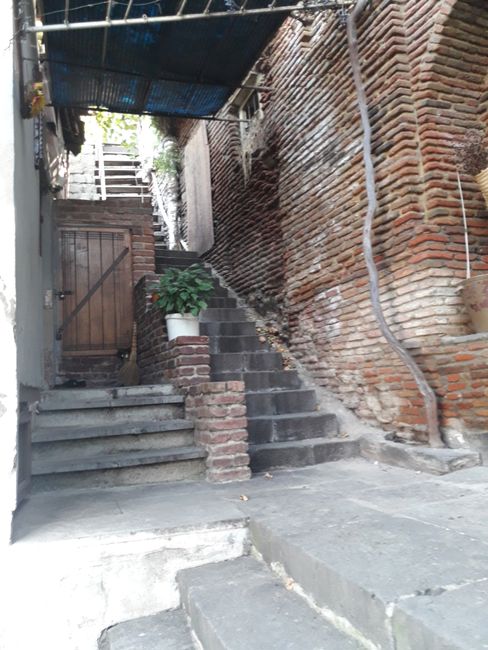
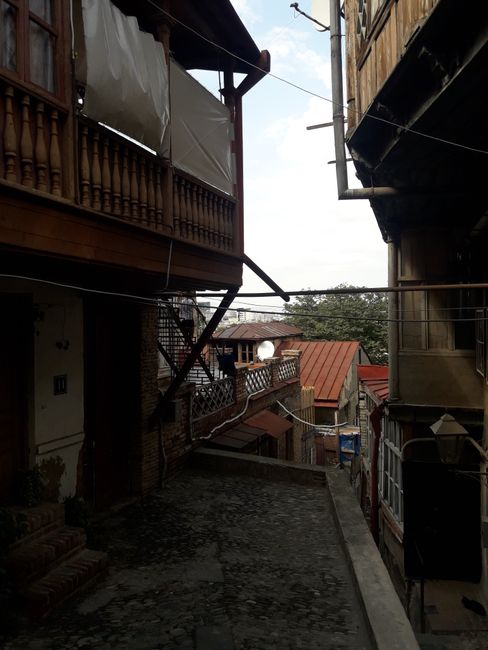
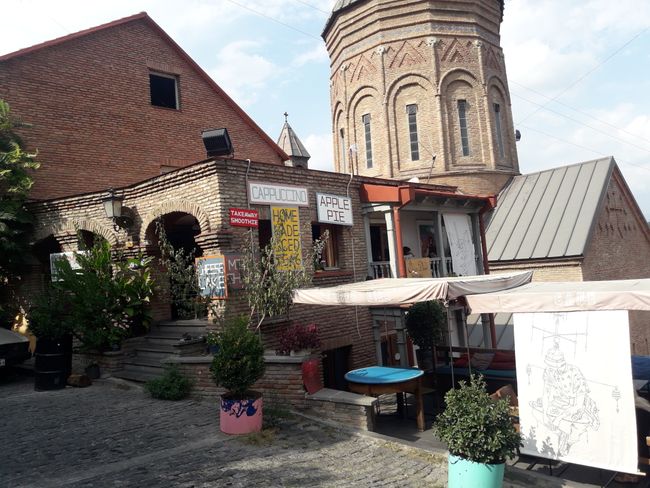
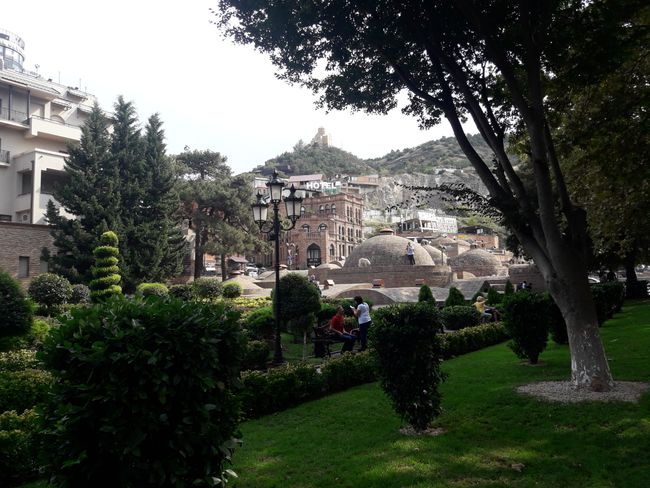
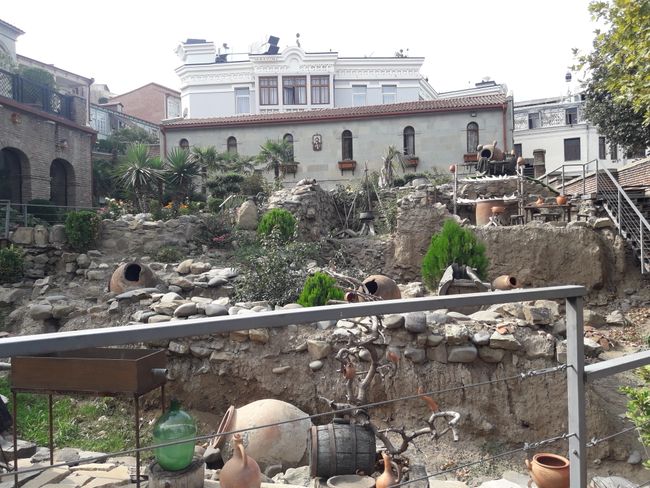
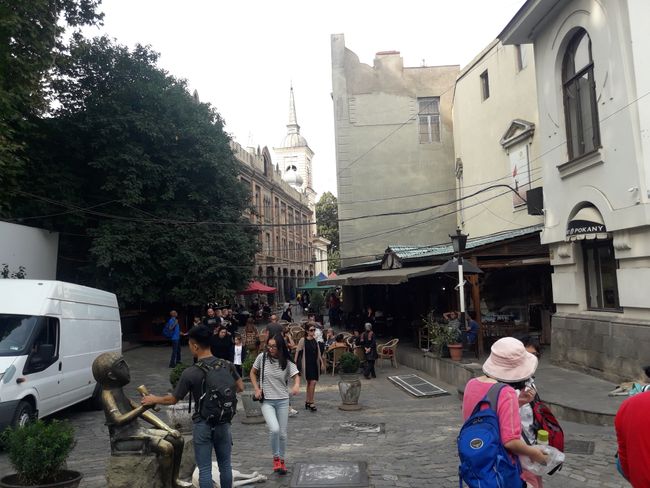
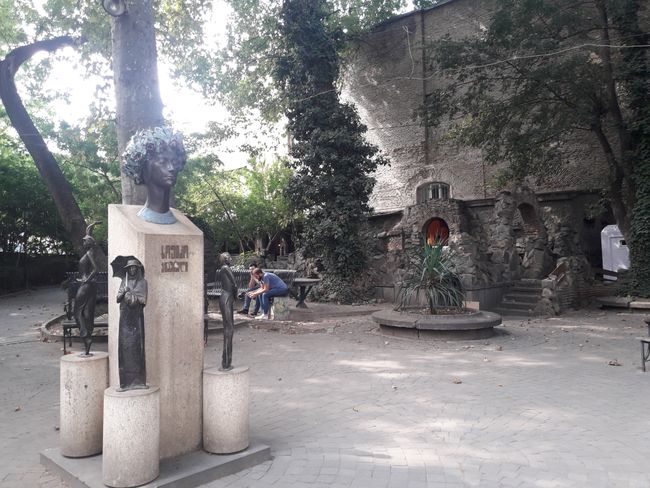
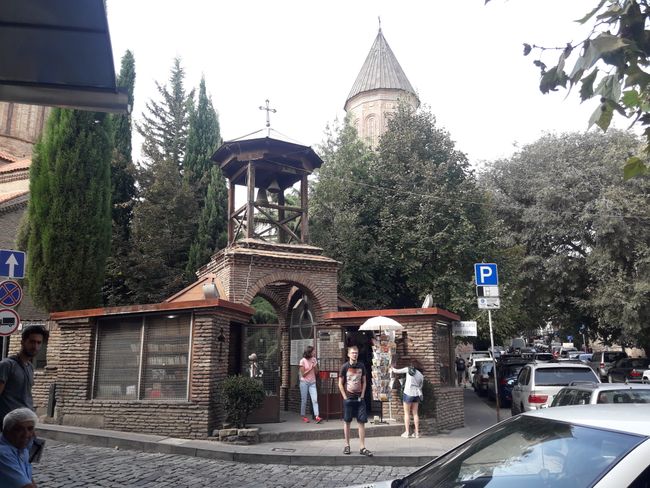
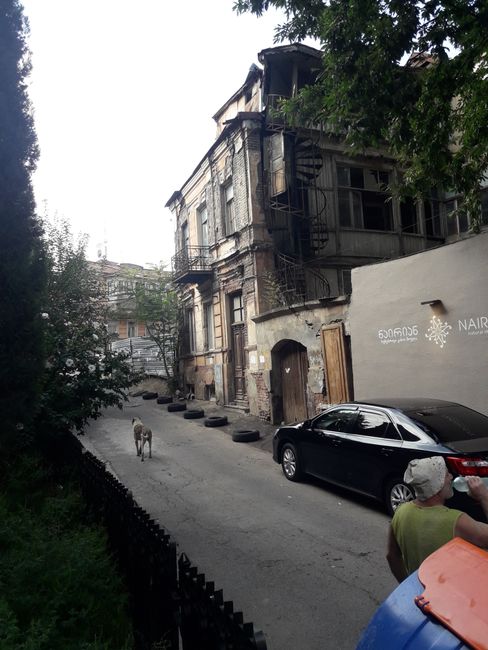
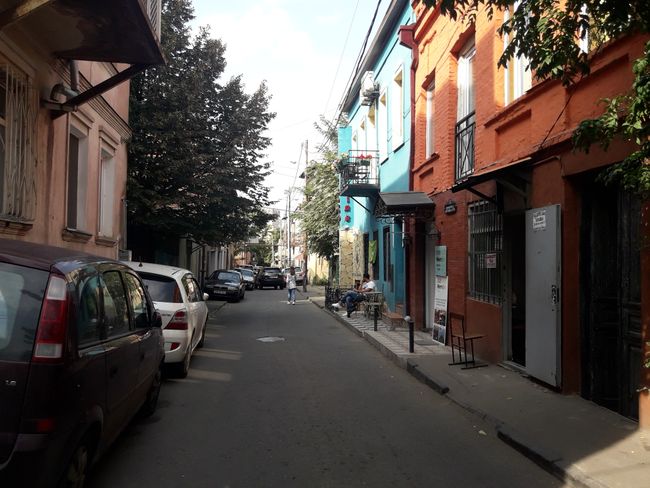
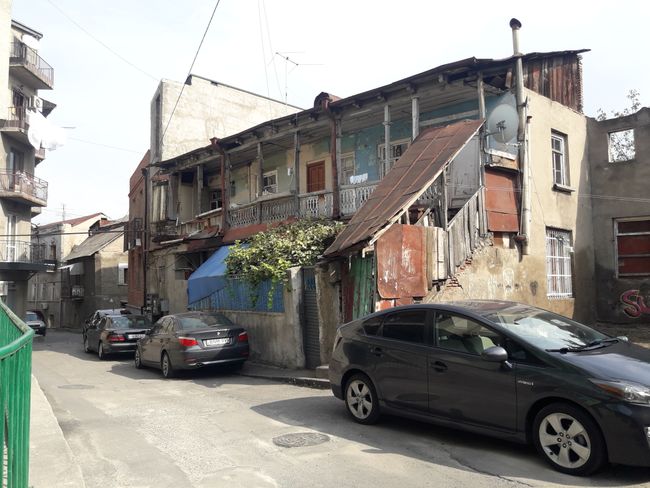
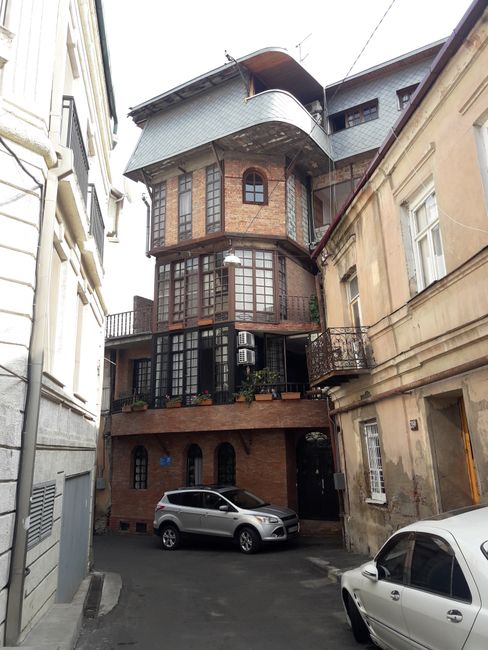
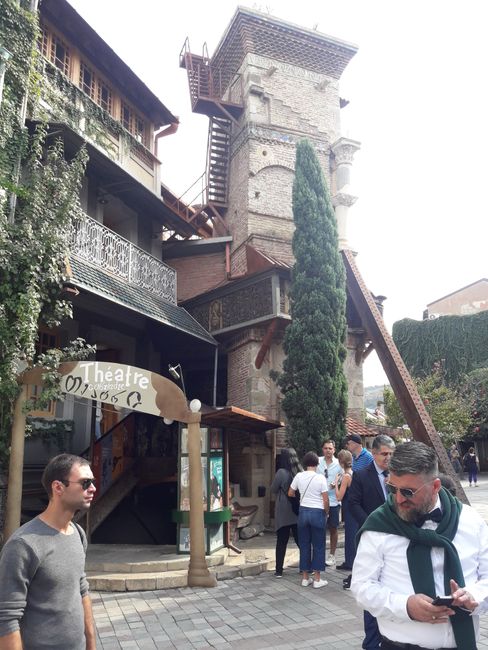
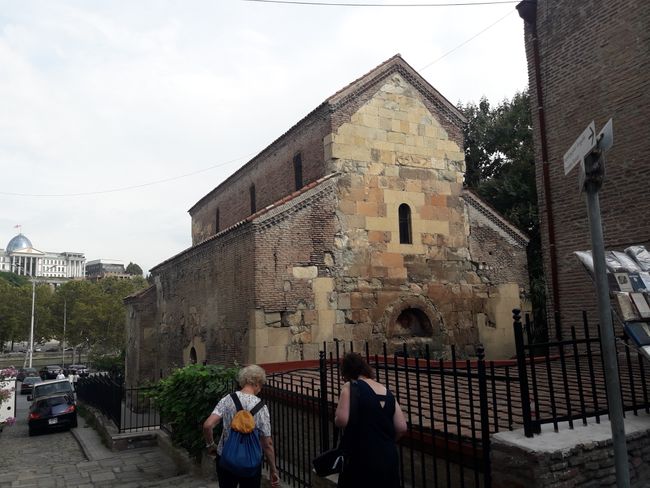
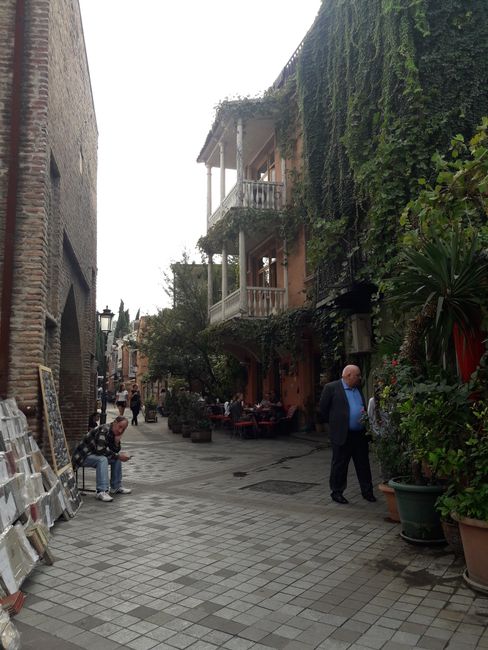
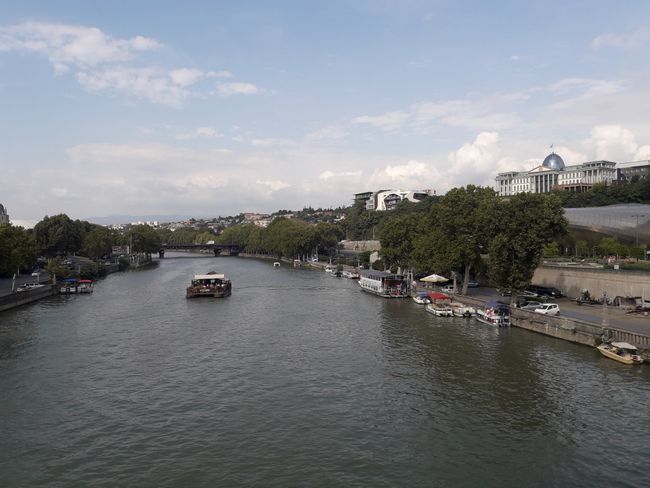
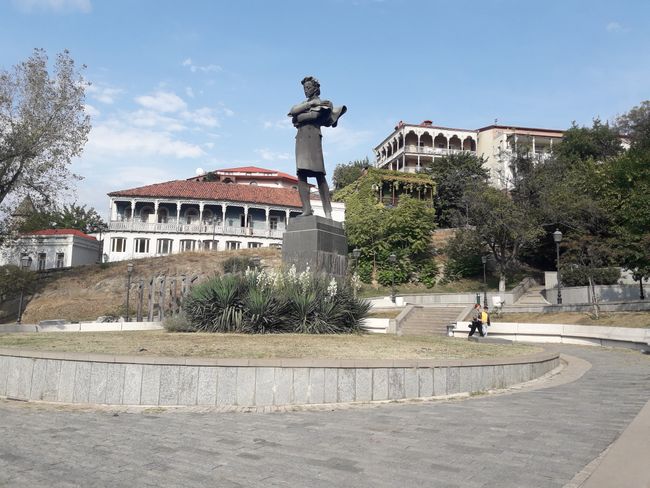
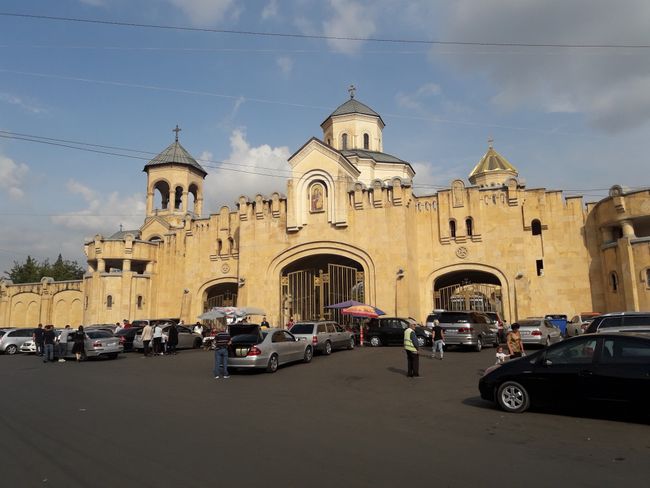
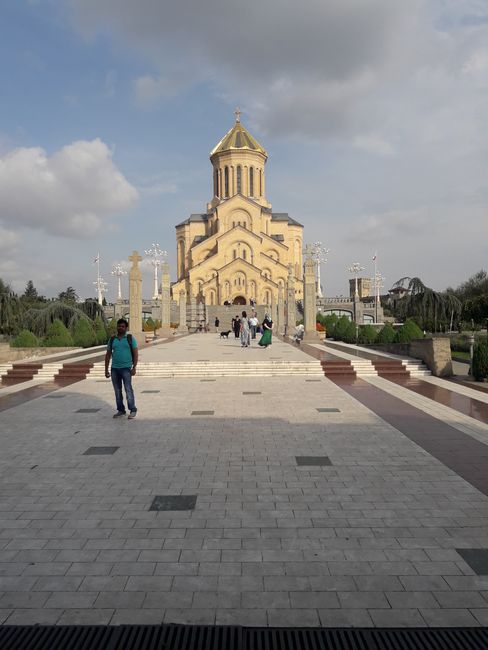
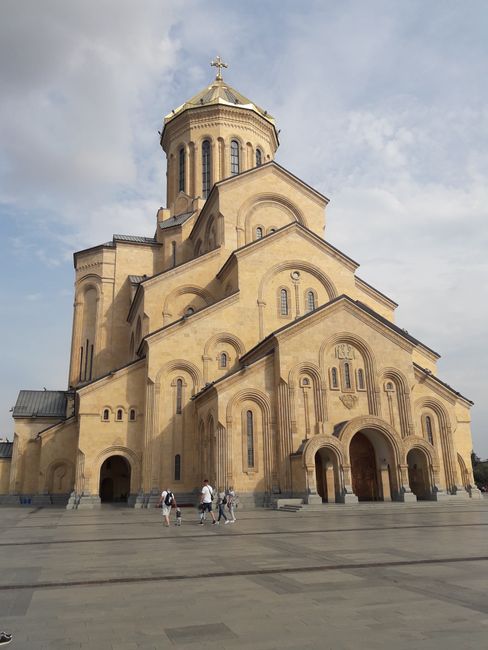
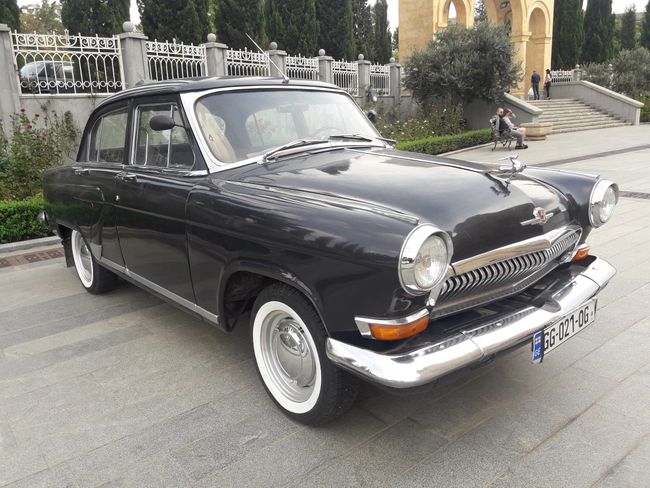
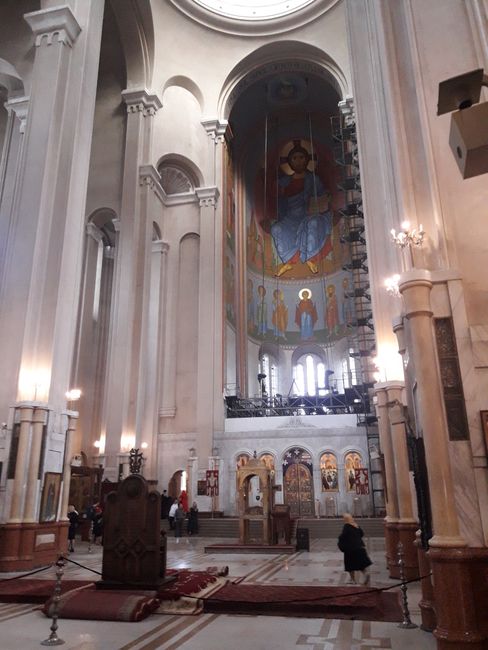
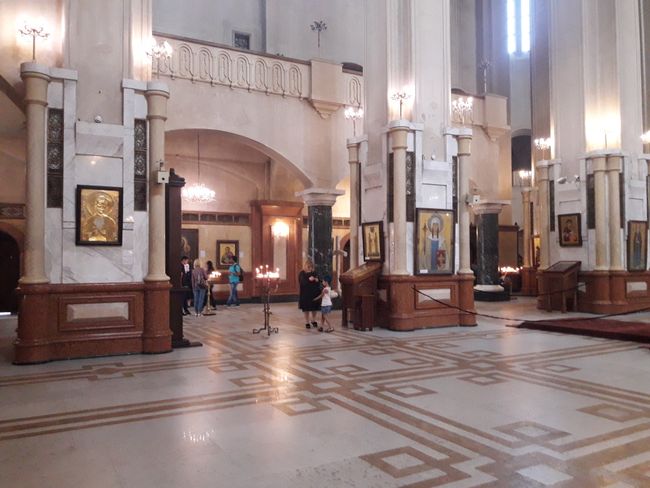
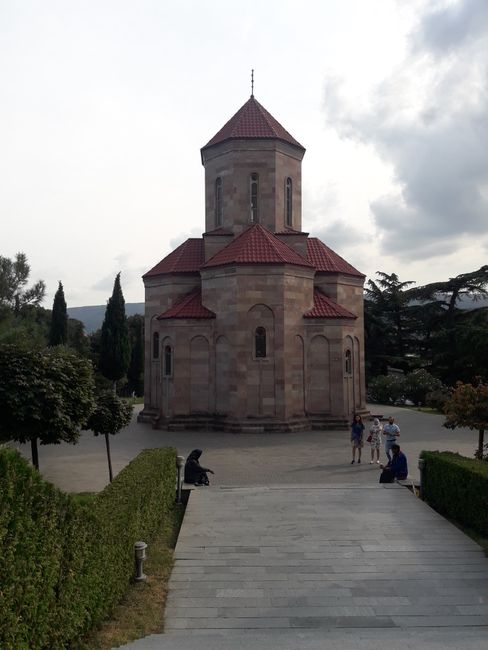
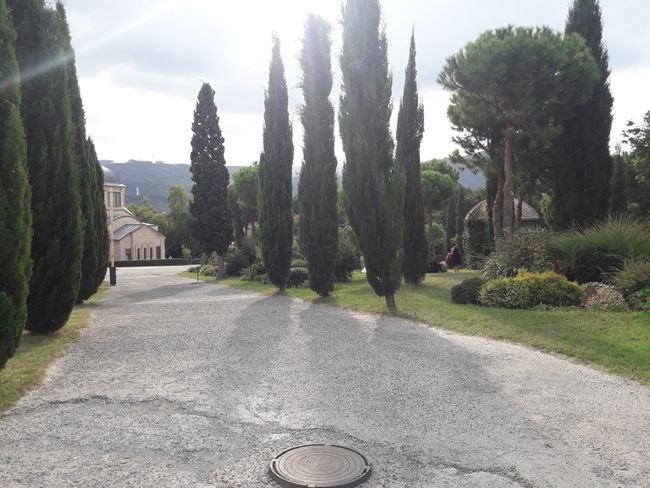
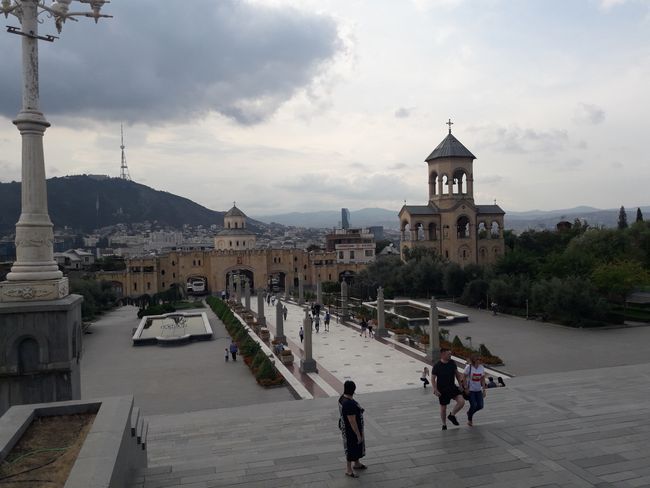
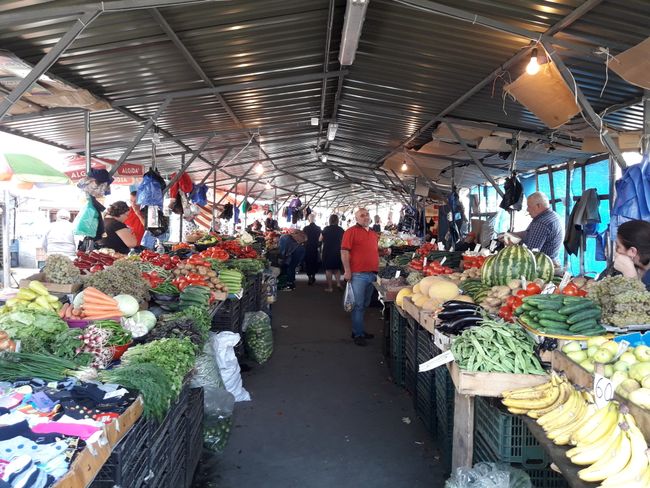
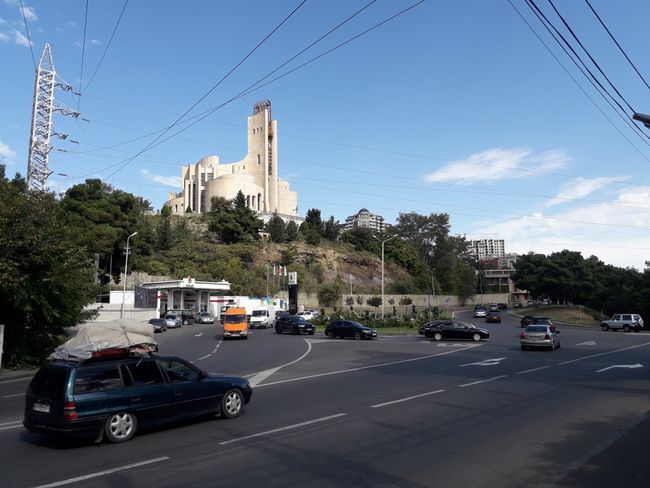
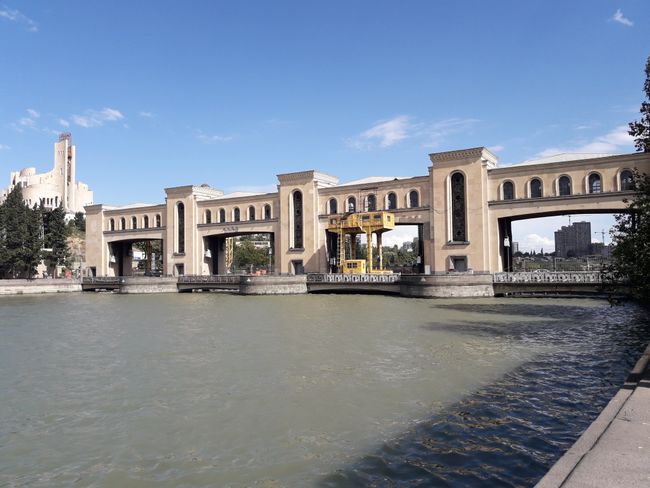
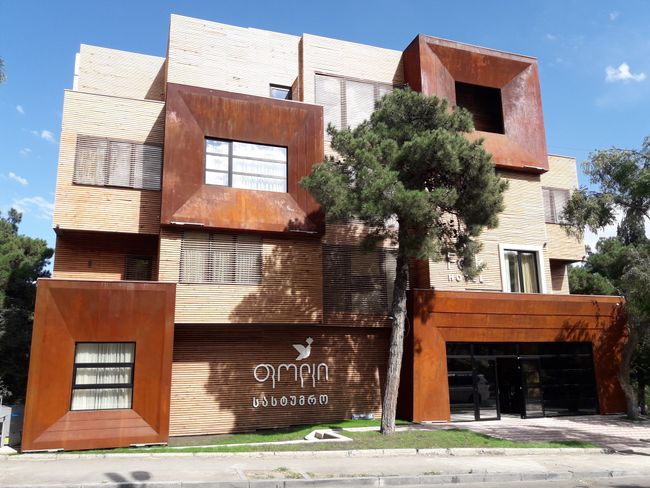
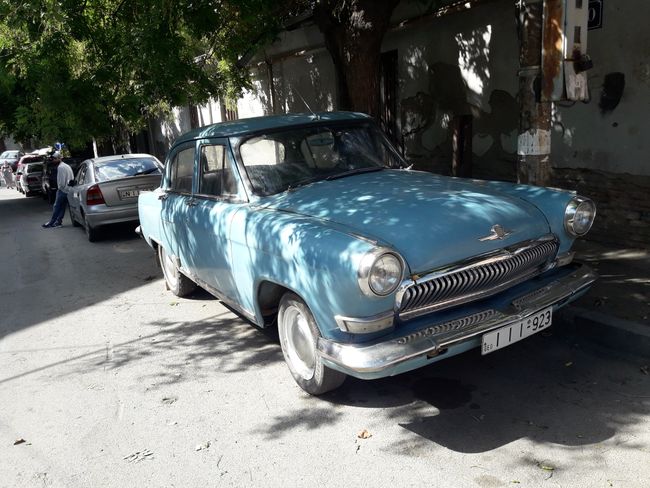
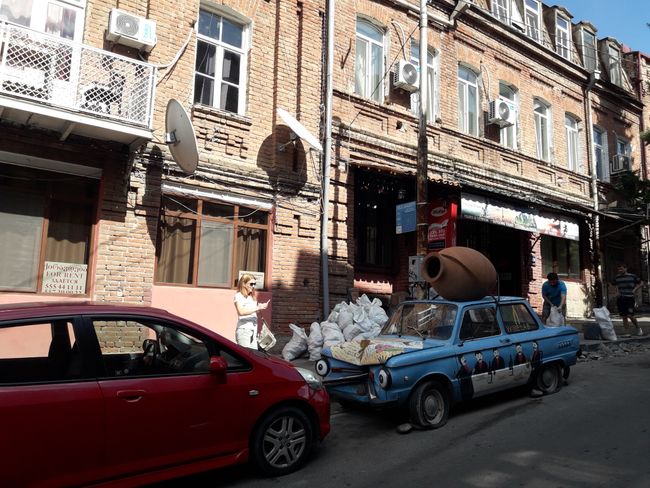
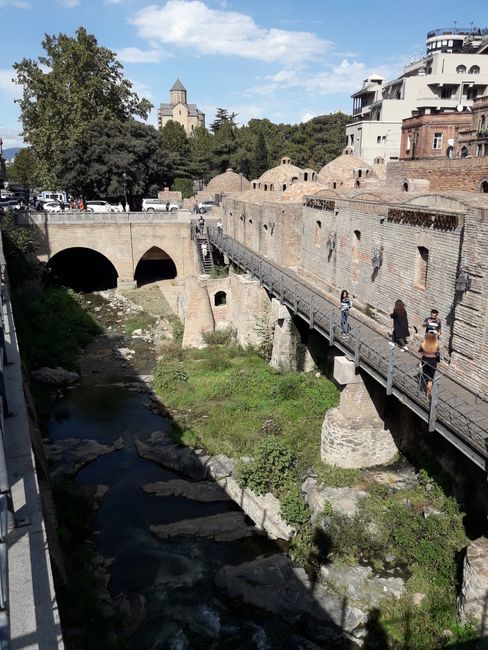
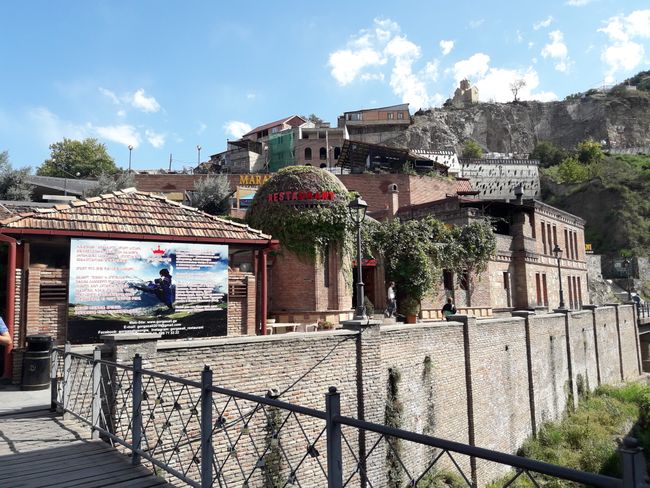
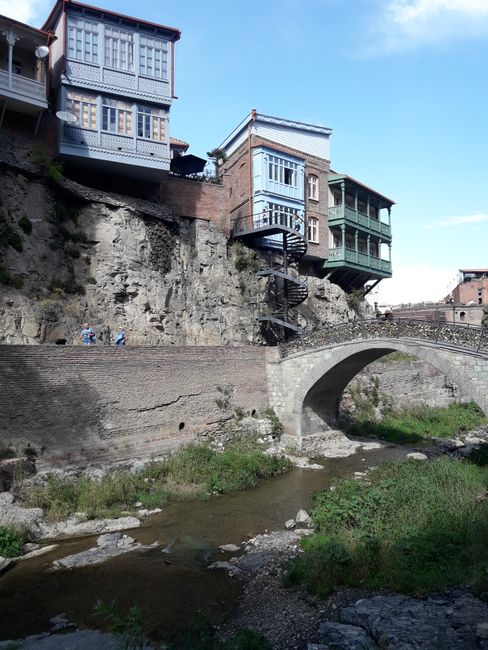
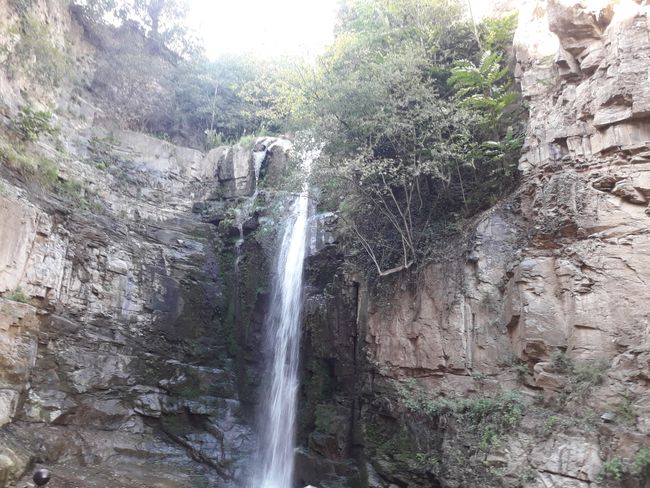
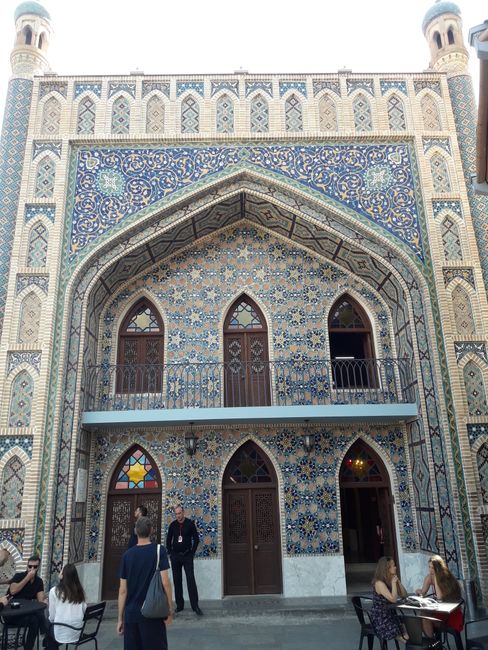
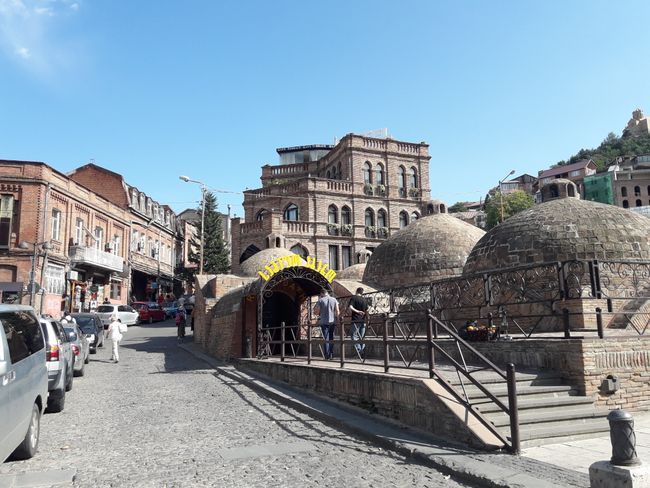
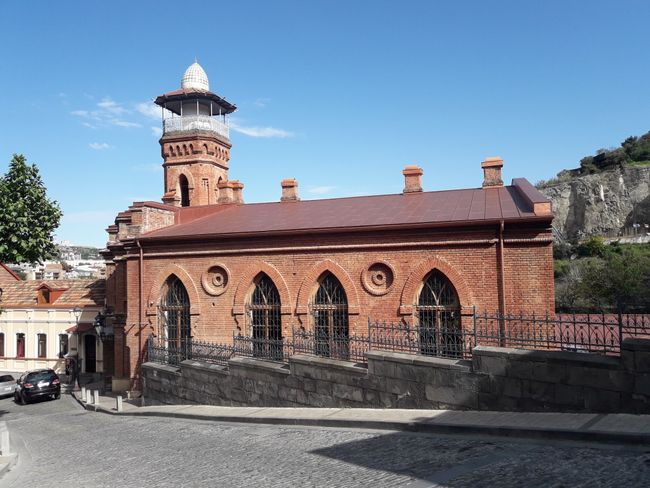
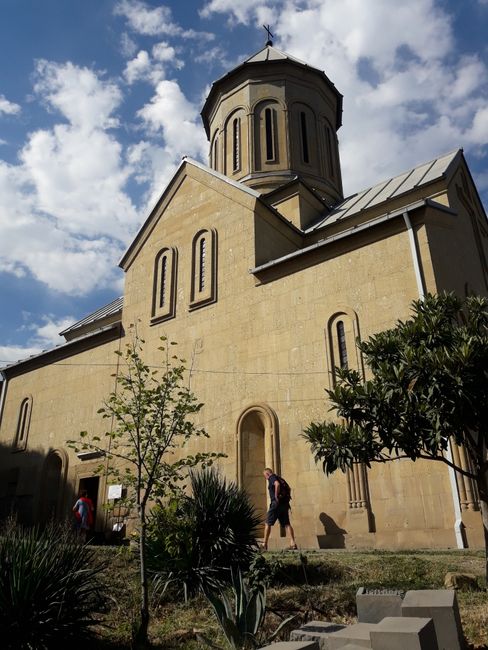
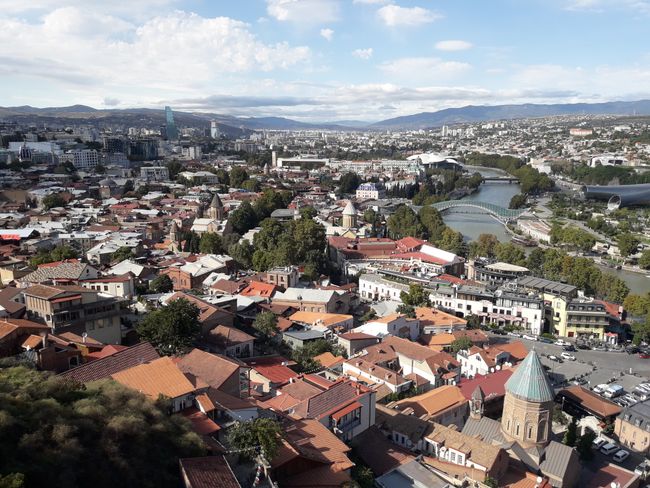
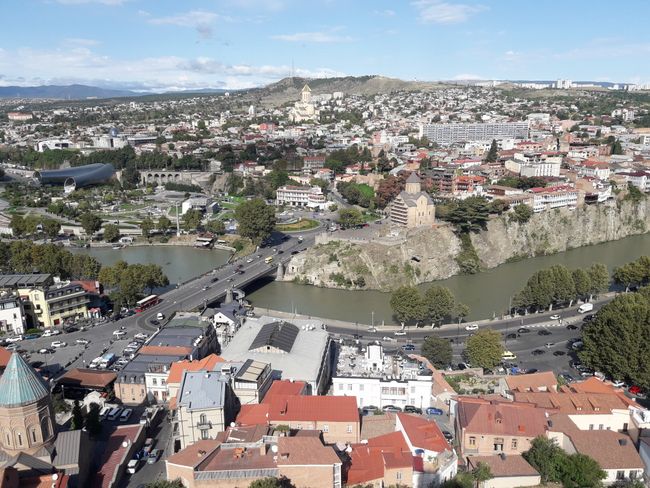
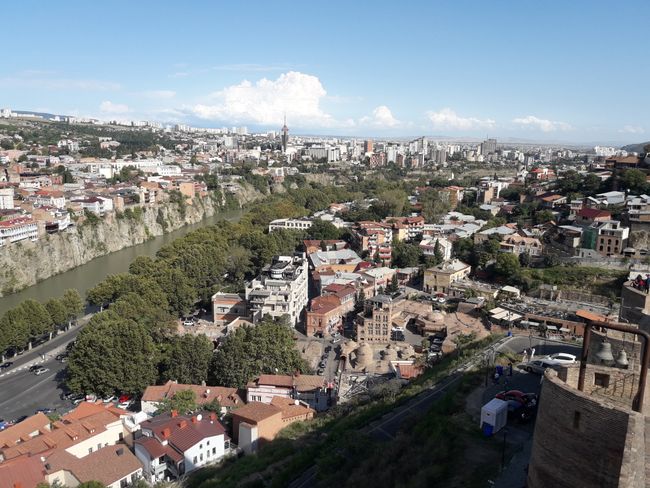
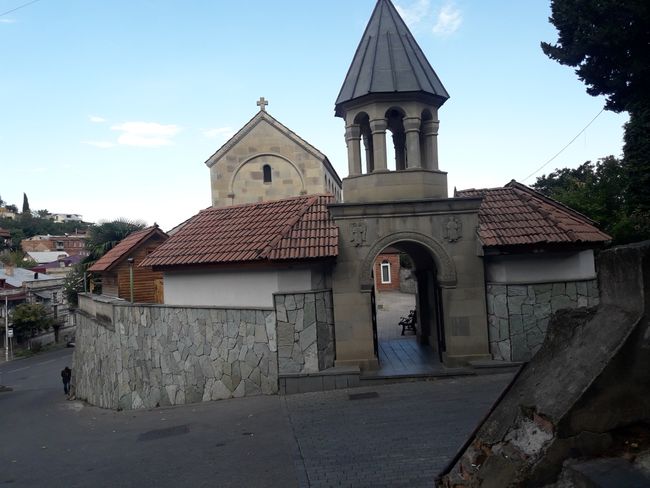
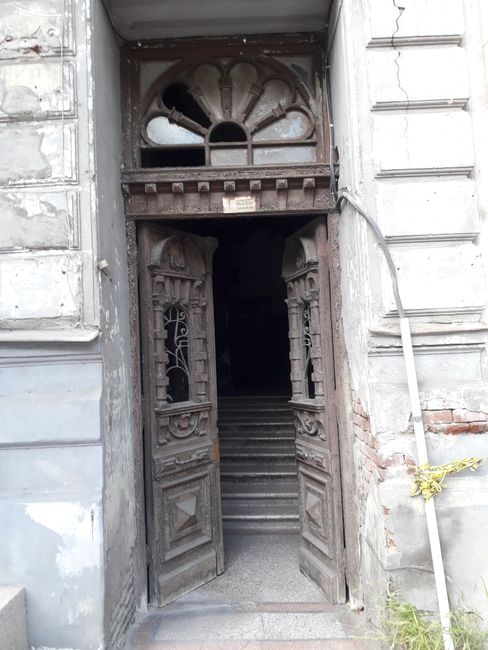
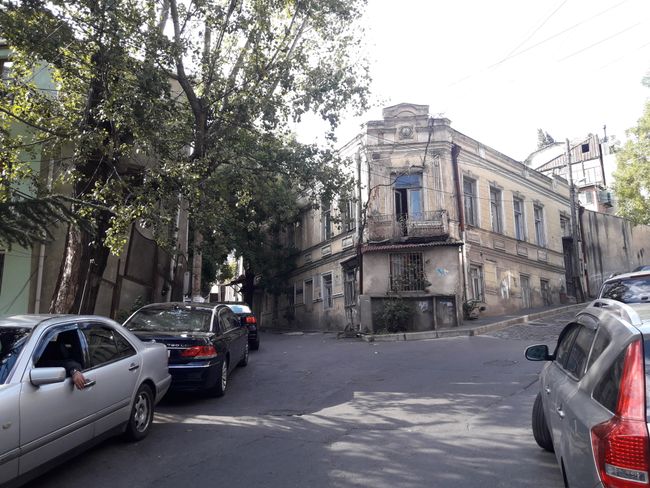
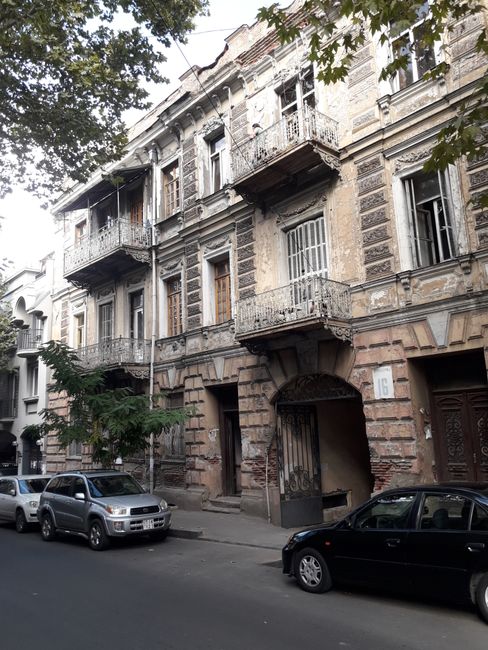
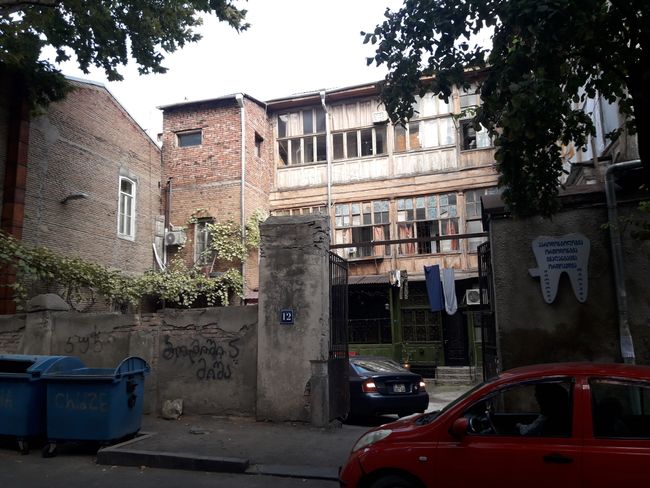
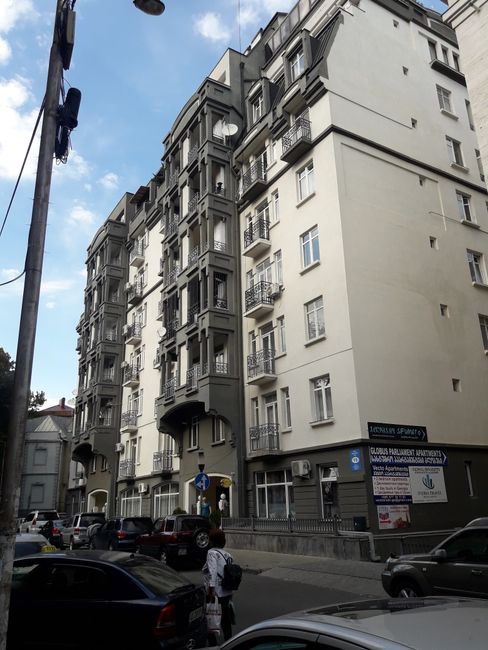
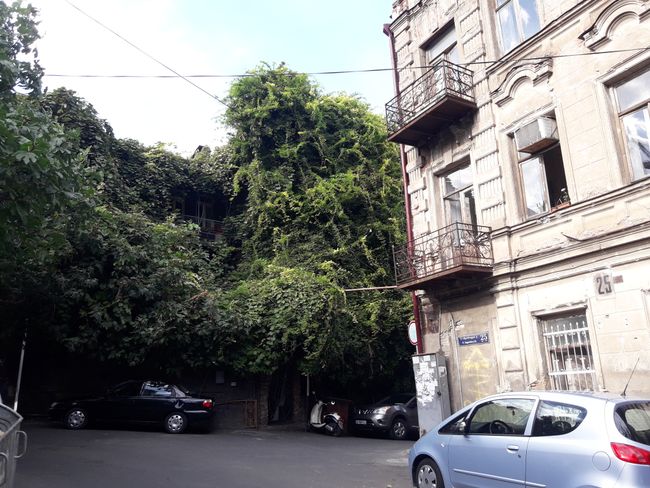
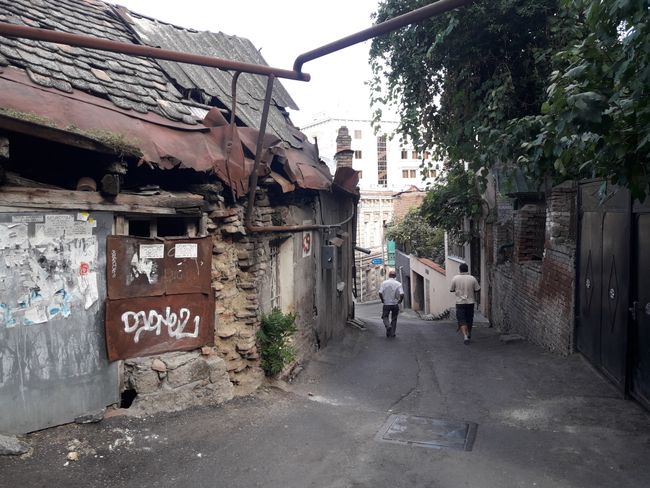
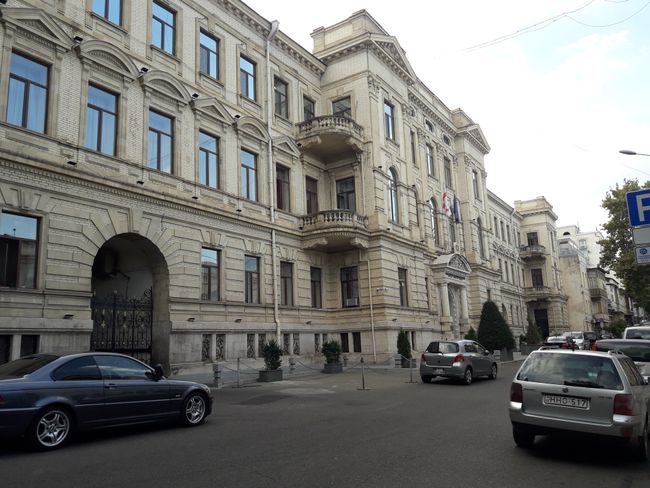
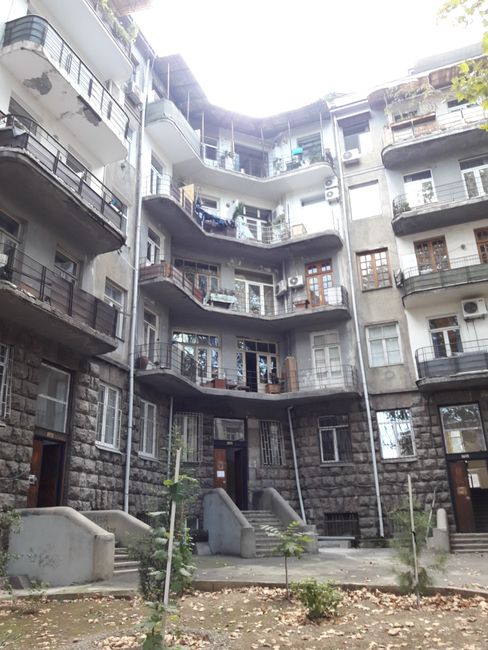
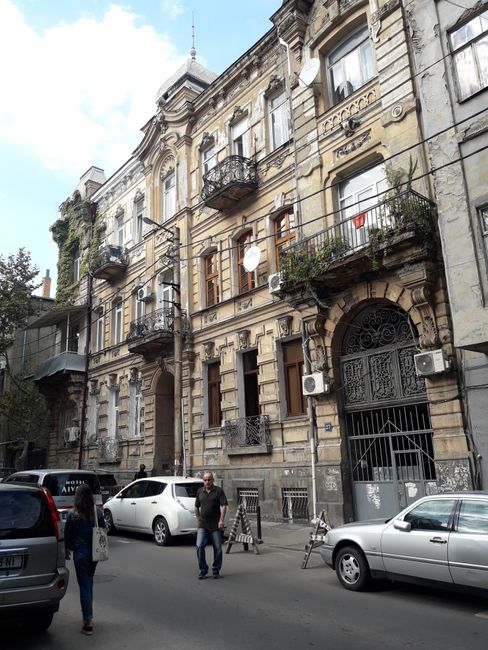
ނިއުސްލެޓަރ އަށް ސަބްސްކްރައިބް ކޮށްލައްވާ
After a longer compulsory stay in Gori, it is finally time on Wednesday (September 19, 2018) and we are back on track. During the last few days, I had to deal with an exhibitionist on a regular basis, so I am quite happy to finally be able to leave the campsite on the banks of the river Liachvi. About 10 km away, to the east, is the cave village of Uplistsikhe. The settlement is perched on a rocky plateau near the Kura River and is formed by various rock structures that were created between the early Iron Age and the late Middle Ages. It is one of the oldest known settlement structures in Georgia. I have already chosen a hiking trail to get there on my map. After almost 2 km, however, I decide against walking and turn towards Gori train station. The sun is still quite powerful, the path is expected to have no shade, and I am not yet back in top form. There is no minibus to the cave village at the train station, but a taxi driver offers to drive us directly to the open-air museum for a small fee. So we arrive a short time later. I look for a shady spot for Rango and our luggage and then start visiting the historical settlement. I am by no means the only one, there is a lively crowd of visitors. After almost 2 hours, I have a coffee and some cake before I head to Kvakhvreli with the "Dicken". I inquire at a small market about further travel options towards Mtskheta. We can either go back to Gori and take a marshrutka from there, or we can take the train from Kvakhvreli station around eight in the evening to continue east. The train sounds good. Until then, we will spend a few hours relaxing on the banks of the Kura River. The train arrives on time and shortly before nine, we leave Mtskheta train station for the small village and continue to the banks of the Aragvi River, where possible campsites are waiting according to Google Maps. I quickly decide on a spot in the darkness, set up our camp, and end the day with a small dinner.
After a foggy and cool morning, on Thursday morning I first familiarize myself with the immediate surroundings of the campsite. There are plenty of blackberry bushes, a few shade-providing trees, access to the river (for bathing and washing clothes), and the tent is hardly visible from the nearby paths. So everything is fine. Around noon, we can set off on a bigger tour with a good feeling. First, we visit the Bebris-Ziche fortress. There is not much more to discover here than the fortress walls, an old theater, and a panoramic view. So off to the old capital. After a detour to the Samtavro nunnery, we head to the historic old town. It's time for another coffee and something sweet before we wander around the grounds and the immediate vicinity of the Svetitskhoveli Cathedral. The town has really dressed up nicely here. We end the evening in front of the tent.
On Friday, September 22, 2018, I decide to take a trip up to the Jvari Monastery, Georgia's oldest cross-domed church. The church building can be seen well from the campsite and is illuminated at night. After about an hour, we have made the climb to the Sagurami ridgeline on the other side of the Aragvi River and I take a closer look at the church. Inside, the simplicity stands out, the building is allowed to speak for itself. Then we start the descent back to Mtskheta. After a coffee and a small shopping trip in the center, we head back to the tent. I take advantage of the evening sun for a bath in the surprisingly not very cold river. I can't convince Rango to take a bath. Shortly after, the day comes to an end at the site.
On Saturday, it is time for our first excursion to the Georgian capital. I give up on my original plan to walk to Tbilisi, about 20 km away, and look for a hostel there for a few nights. The weekend and Rango as company make the search for a hostel seem almost hopeless. So our stuff stays at the campsite in Mtskheta, and I try to get to Tbilisi by marshrutka with Rango. Surprisingly, we can get on the second attempt and find ourselves in Tbilisi almost 30 minutes later. The bus station is located in the immediate vicinity of a busy market that we have to pass on the way to Didube metro station. Tbilisi stretches about 20 km along the Kura River, and the old town is still about 10 km south of us. So taking the metro seems like the obvious choice. At Rustaveli station, we resurface and continue south along Rustaveli Avenue. The street is characterized by hotels, museums, shopping centers, and residential buildings. Sometimes more elegant, sometimes less. At Liberty Square, we leave the main street and wander along smaller streets and alleys through the old town. Many of the two- to three-story residential buildings still have a long way to go in terms of renovation, while others seem to be in good shape. The hillside location of part of the old town impresses with its winding streets, small churches, and pretty houses. We head back north from the Abanotubani bath district. We cross the Peace Bridge and reach the other side of the Kura River, where we walk up to the Sameba Cathedral. After visiting the magnificent church, we make our way back to Mtskheta by metro and marshrutka.
On Sunday, September 24, 2018, we go back to Tbilisi with the "Dicken". Since Rango is limping again and our longer break did not improve his condition, I want to consult a veterinarian. This time it takes us a few more attempts to hitch a ride on a marshrutka, and in Tbilisi, an overzealous officer catches us when changing metro lines. So we have to walk a bit. Along the way, I buy a new mattress (I never got the hole caused by Rango completely sealed). In the early afternoon, we finally arrive at a veterinarian in the Saburtalo district. After a brief examination, I am told to keep Rango calm for the next three days and give him two different medications. If there is no improvement, we have to come back. Let's hope for the best. Then we take the metro and marshrutka back to the tent.
On Monday, I treat myself to a rest day and laze around at and inside the tent.
On Tuesday, September 26, 2018, I have to go back to Tbilisi. The new mattress is already releasing air again without being asked. I just have no luck with these things. Since I bought the mattress in a rather small shop (garage sale style) and didn't get a receipt, I am rather pessimistic about exchanging or complaining about it. But when I finally find the store again, everything turns out to be good after a short time. The shop is only a branch of a larger store, and out of goodwill, I get a new mattress to take home. Very nice. Back at the tent, I am enthusiastically welcomed by the "Dicken". It had been a while since he had to stay home alone.
For Wednesday, I planned a visit to a historic sulfur bath in Abanotubani. I arrive at the location in the early afternoon, but as soon as I see the cars in front of the baths, I have a feeling that a bath with a massage and all the trimmings is no longer available in my price range. And I turn out to be right. After three attempts at different bathhouses, I decide to take a trip to the ruins of the Nariqala fortress. From the old walls, I have a magnificent view of Tbilisi. I continue along the mountain ridge past the Mother of Georgia (Kartlis Deda) and a cable car until I descend back into the old town. I stroll through small alleys until I reach Rustaveli metro station, where I take a break in front of McDonald's and upload some pictures using the Wi-Fi. I return to Mtskheta by metro and marshrutka, where I treat myself to a bath in the Aragvi River.
Both Thursday (September 28, 2018) and Friday, I prepare my equipment for the next leg of our journey, as we are about to climb back into the Greater Caucasus Mountains. Rango is running smoothly again, so nothing stands in the way of a trip to Mount Kazbek and then to Tusheti.
ނިއުސްލެޓަރ އަށް ސަބްސްކްރައިބް ކޮށްލައްވާ
ޖަވާބު
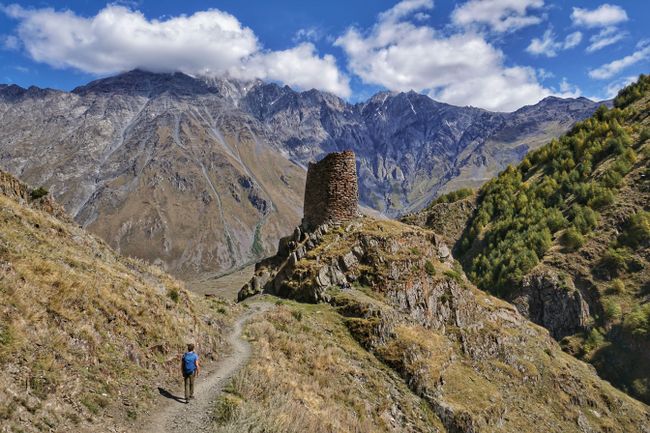
ދަތުރު ރިޕޯޓްތައް ޖޯޖިއާ އެވެ
